On March 28–29, 2022, join the U.S. Department of Energy Bioenergy Technologies Office for a public virtual workshop titled, Bioenergy’s Role in Soil Carbon Storage. Below are the speaker bios for this workshop.
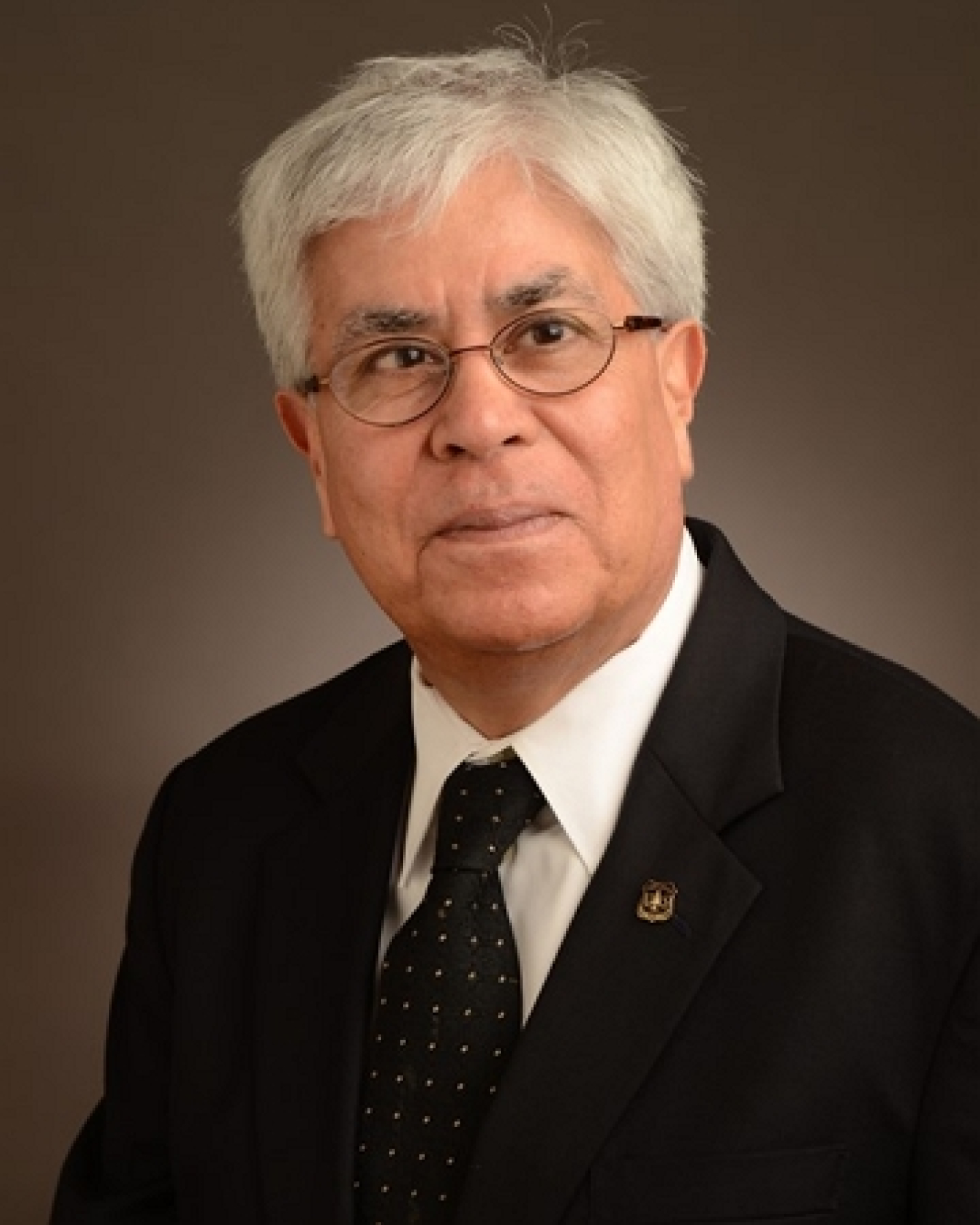
Dr. Carlos Rodriguez Franco, U.S. Forest Service
Dr. Carlos Rodriguez Franco works with U.S. Forest Service Research and Development, as a Senior Forester. Prior to this he worked in Mexico for the National Institute of Forestry, Agriculture, and Animal Husbandry Research (INIFAP) for 25 years. He was Forestry Research General Director at INIFAP from 1996 to 2000. He was Deputy Chief for R&D from 2016–2018. Dr. Rodriguez Franco has written more than 90 scientific articles on subjects related to topics in forestry published in Mexico and the United States and has authored a book in Spanish titled, Sampling Designs Applied to Forest Inventories. He has taught at Chapingo Autonomous University and the Colegio de Postgraduados from 1982 to 1999.
Dr. Rodriguez Franco holds a Ph.D. in forest sciences from Yale University.
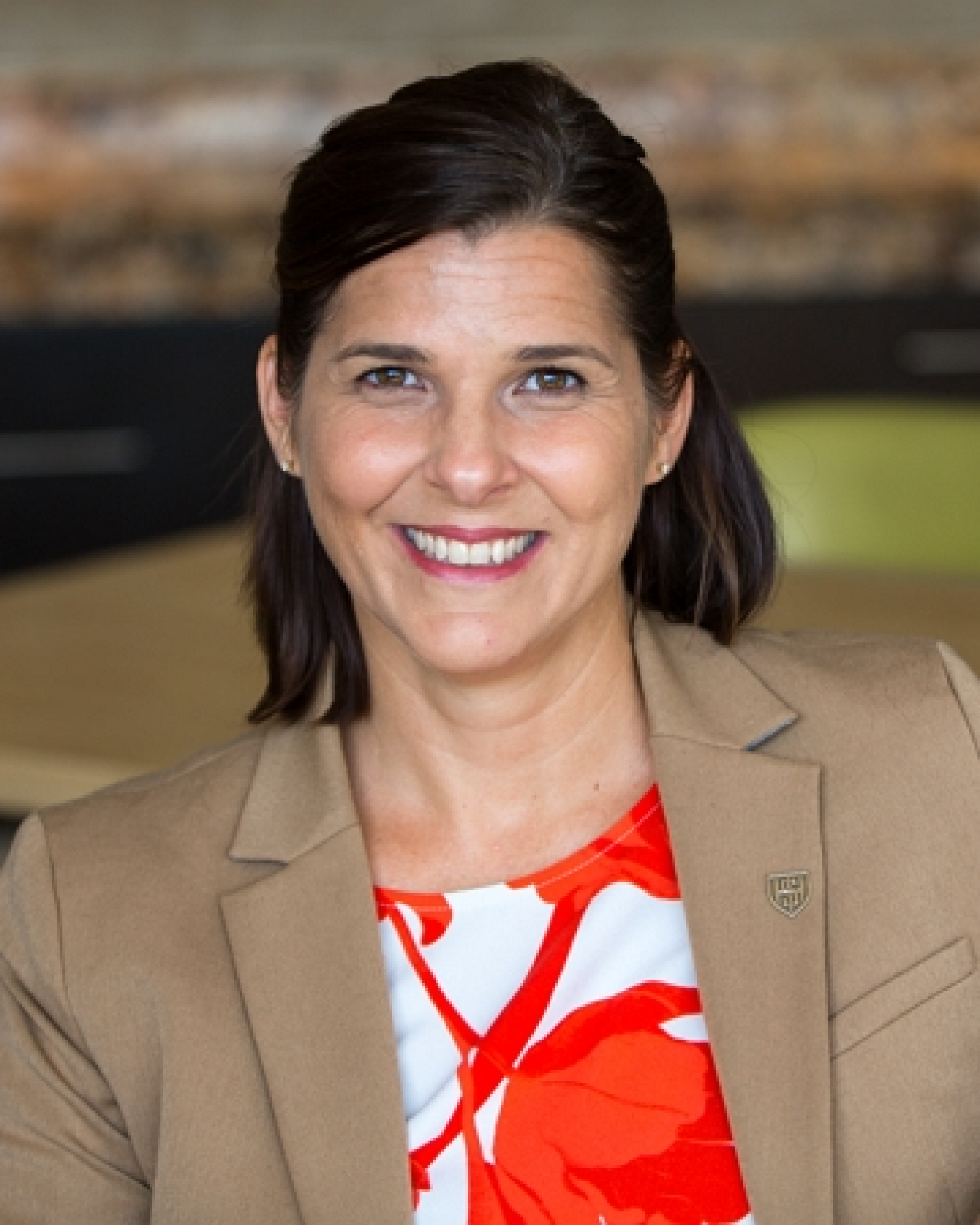
Dr. Cristine Morgan, Soil Health Institute
Dr. Cristine Morgan serves as Chief Scientific Officer at the Soil Health Institute, where she establishes research priorities to advance soil health and develops the scientific direction, strategy, and implementation for soil health research programs. Dr. Morgan is an adjunct professor of Soil Science at Texas A&M University with emphasis in soil hydrology, pedometrics, and global soil security. She is an editor-in-chief at Geoderma, a global soil science journal, and a founding editor in chief of Soil Security. Dr. Morgan has served on the board of directors and is a fellow for the Soil Science Society of America.
Dr. Morgan earned her B.S. in plant and environmental soil sciences from Texas A&M University and an M.S. and Ph.D. in soil science from the University of Wisconsin-Madison.
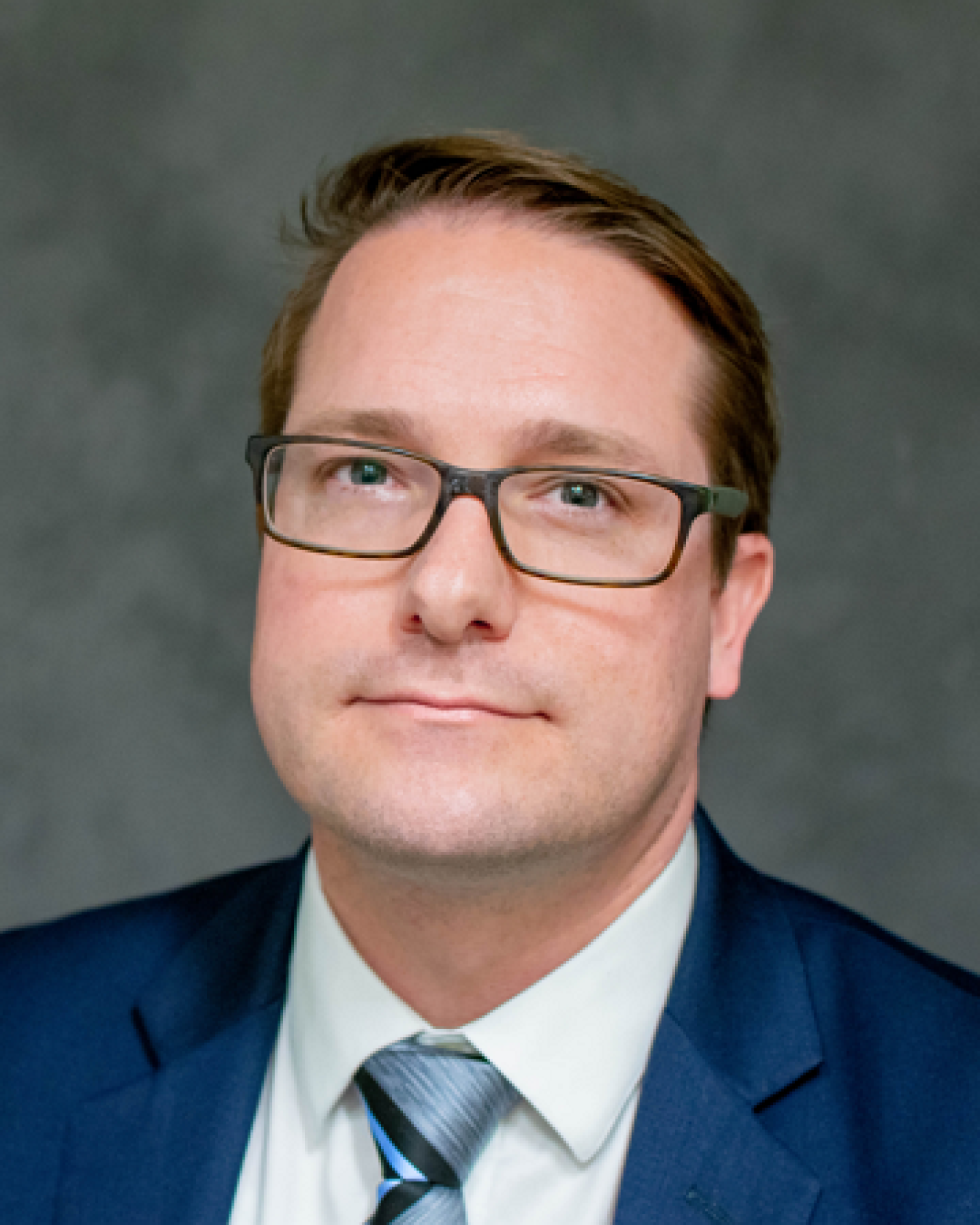
Dr. David Babson, U.S. Department of Energy, Advanced Research Projects Agency-Energy
Dr. David Babson currently serves as a Program Director at the Advanced Research Projects Agency-Energy (ARPA‑E). His focus at ARPA-E includes bioenergy, agricultural systems innovation, and carbon management. Prior to joining ARPA-E, Babson served as the Senior Advisor for Renewable Energy, Natural Resources, and the Environment in the Office of the Chief Scientist at the U.S. Department of Agriculture (USDA). There, he led R&D coordination efforts on carbon management, climate adaptation, sustainability, agricultural systems innovation, bioenergy, and biotechnology. Prior to joining the USDA, Babson was a Technology Manager in the U.S. Department of Energy’s Bioenergy Technologies Office (BETO) where he oversaw several Conversion Program projects and worked to understand how to leverage new technologies to advance the emerging bioeconomy and address global energy and climate challenges. Before BETO, Babson advocated for sustainable transportation solutions as a Senior Fuels Engineer at the Union of Concerned Scientists.
Babson earned a B.S. in chemical engineering from the University of Massachusetts Amherst and a Ph.D. in chemical and biochemical engineering from Rutgers University.
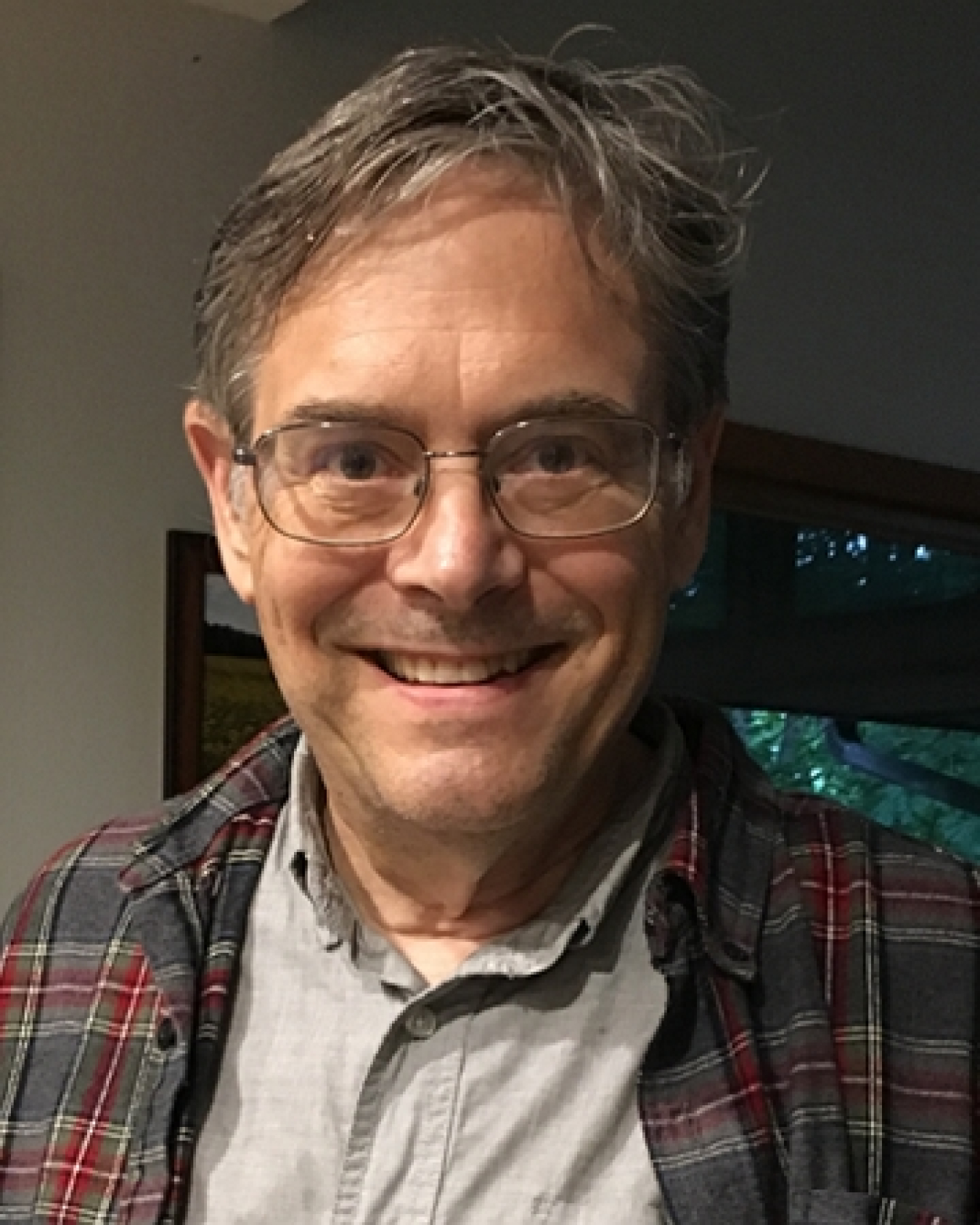
Dr. David Laird, Iowa State University
Dr. David Laird is currently Founder and President of N-Sense Inc, an agrotechnology company and Professor Emeritus at Iowa State University. He is author or co-author of over 157 refereed journal articles and book chapters related to biochar, bioenergy, clay mineralogy, clay surface chemistry and environmental science. His publications have been cited over 20,000 times and his h-index is 60 (Google Scholar). Previously, he served as editor of Geoderma, associate editor for Soil Science Society of America Journal and Clays and Clay Minerals, and as President and Vice-President of the Clay Minerals Society. He is a fellow in the American Society of Agronomy and the Soil Science Society of America.
Dr. David Laird received a Ph.D. in agronomy from Iowa State University.
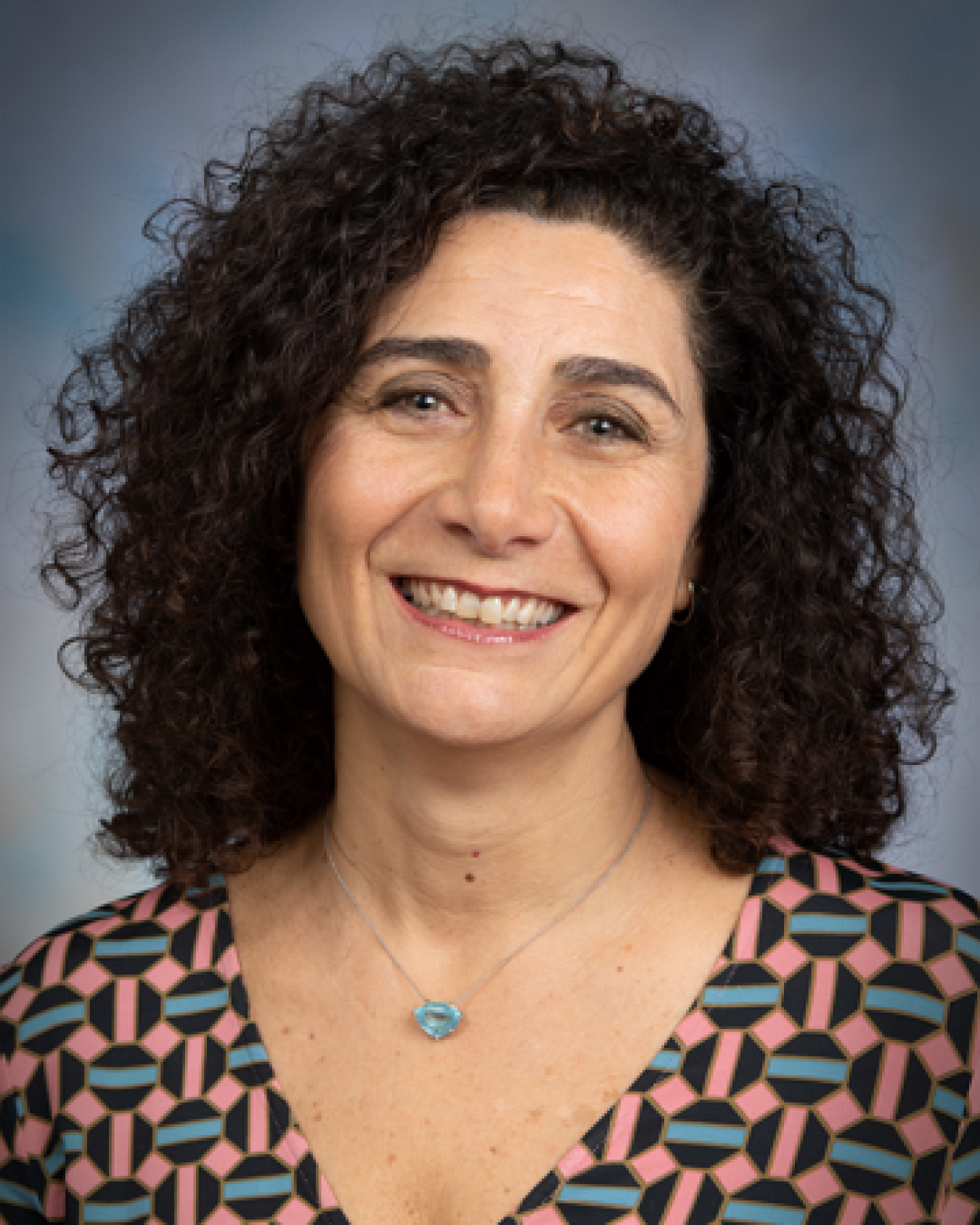
Dr. Francesca Cotrufo, Colorado State University
Dr. M. Francesca Cotrufo is a Professor in the Department of Soil and Crop Sciences at Colorado State University (CSU). Prior to joining CSU in 2008, she worked as a professor at University of Campania, Italy.
Dr. Cotrufo is a soil ecologist and biogeochemist, internationally recognized for her work in the field of litter decomposition and soil organic matter dynamics, and in the use of isotopic methodologies in these studies. She strives to advance understanding of the mechanisms and drivers of formation and persistence of soil organic matter, and their response to global environmental changes and disturbances. She uses this understanding to improve modelling of soil C-climate feedbacks to inform climate and land use policy and management. She also pursues applied research to innovate and increase throughput of soil carbon and health testing, and to propose soil management practices that regenerate healthy soils and mitigate climate change.
As a scientist fully aware of the current and future challenges to humanity, Dr. Cotrufo is interested in promoting research education, and outreach activities to help mitigating the current human impacts on the Earth System and assure a better sustainable path for humanity. To this end, with other colleagues at CSU, she recently formed the Soil Carbon Solution Center.
Dr. Cotrufo is editor of the journal Global Change Biology. To date she has published over 140 peer-reviewed articles and several book chapters. Recently, Dr. Cotrufo became an entrepreneur and co-founded, with five other women in her lab, Cquester Analytics, an analytical facility designed to accurately quantify metrics of soil organic matter and C sequestration at scale.
Dr. Cotrufo earned a B.S. from the University of Naples, Italy and Ph.D. from Lancaster University in the United Kingdom.
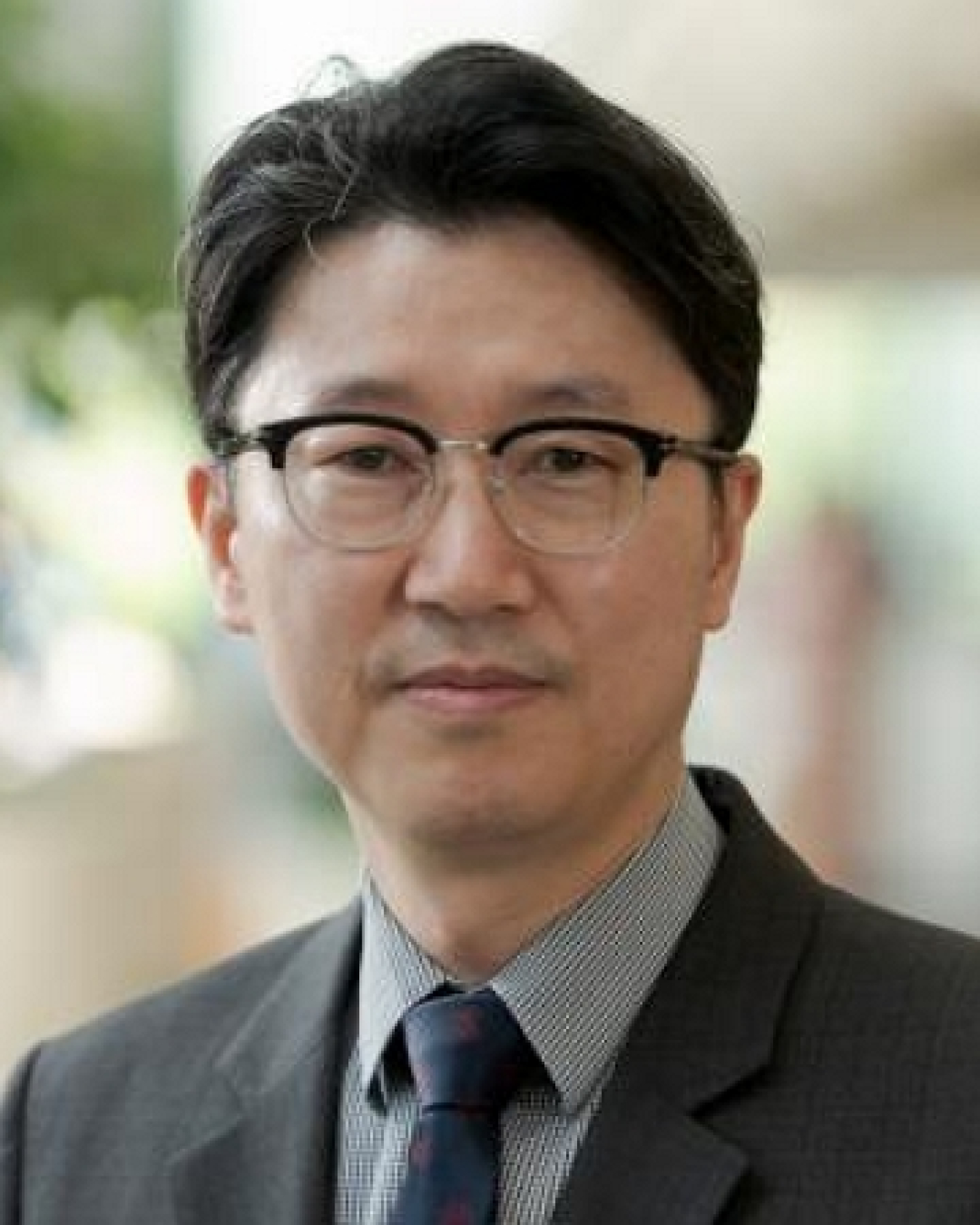
Dr. Hoyoung Kwon, Argonne National Laboratory
Dr. Hoyoung Kwon, a Principal Environmental Scientist of the Systems Assessments Center of the Energy Systems division at Argonne National Laboratory. Before joining Argonne in 2018, he worked at the International Food Policy Research Institute (Washington, DC) to develop analytical frameworks to promote innovative agricultural technologies in developing countries.
His current research focuses on assessing environmental impacts of biofuel feedstock production by employing Argonne’s GREET (Greenhouse gases, Regulated Emissions, and Energy use in Technologies) model for life cycle analysis of advanced vehicle technologies, transportation fuels, and other energy systems. In addition, he examines the potential for sustainable farming practices to improve the greenhouse gas profile of corn grain and cellulosic feedstocks (i.e., corn stover, dedicated energy crops, and forest residues) by utilizing process-based simulation models.
Dr. Kwon received his master’s degree in environmental management from Duke University and Ph.D. in Environmental Sciences from the University of Illinois at Urbana-Champaign.
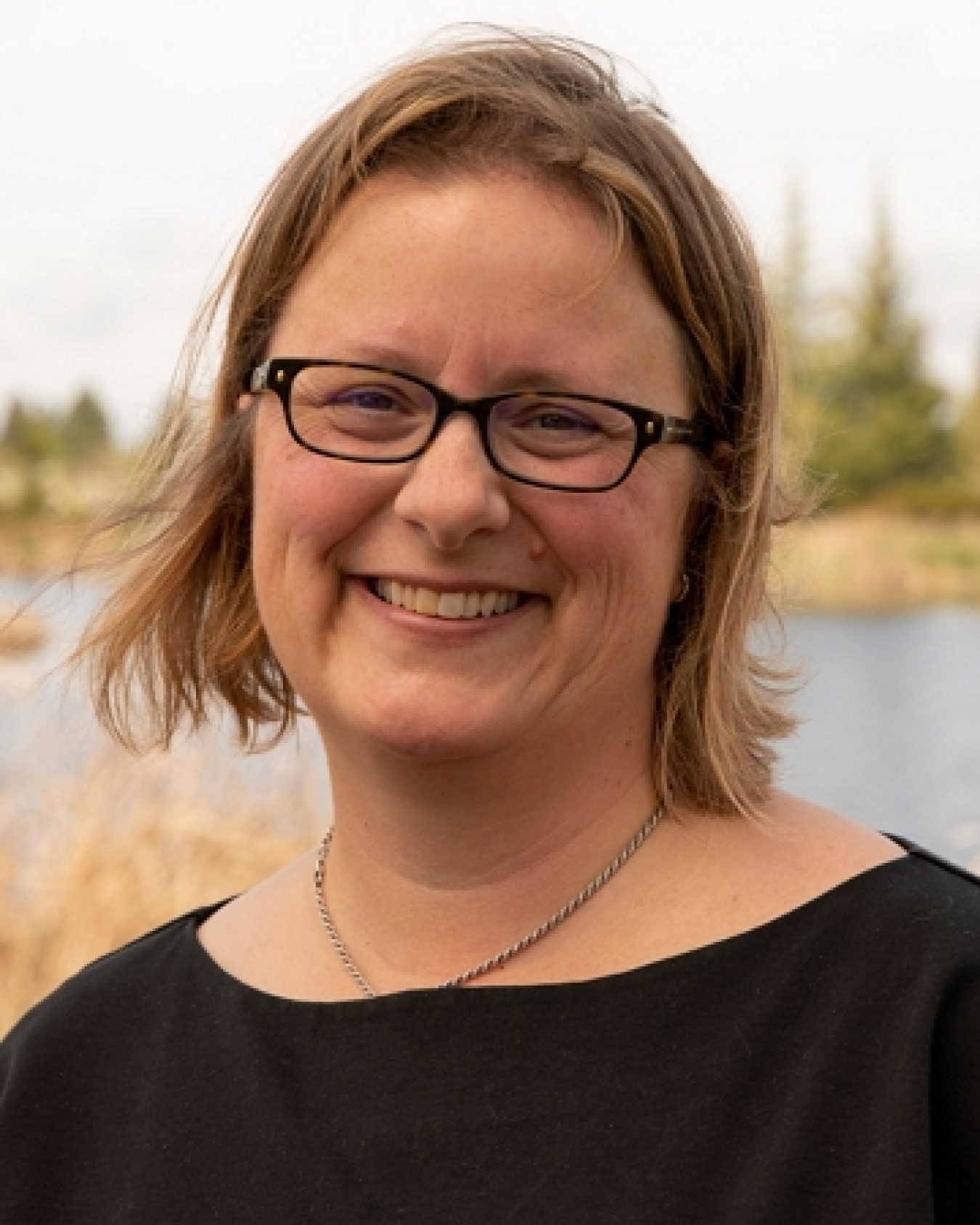
Dr. Jennifer Pett-Ridge, Lawrence Livermore National Laboratory
Dr. Jennifer Pett-Ridge is a Senior Staff Scientist at Lawrence Livermore National Laboratory (LLNL) using microbial ecology, isotope tracing/imaging (NanoSIMS), molecular systems biology, and biogeochemistry to link identity and function in environmental microbial communities. As founder of LLNL’s Genomic Science Biofuels Scientific Focus Area (SFA), and principal investigator of LLNL’s Soil Microbiome SFA she coordinates multi-disciplinary teams working on sustainable biofuel production and mechanisms of soil carbon persistence. She is the lead of the LLNL Carbon Initiative Soil Carbon Uptake pillar, and the National Getting to Neutral analysis, a U.S. county-level economy-wide evaluation of carbon dioxide removal.
As Group Leader for the Environmental Isotope Systems group, Pett-Ridge manages $35 million in U.S. Department of Energy (DOE), National Science Foundation, National Aeronautics and Space Administration and other funding. She has published over 115 peer-review articles and collaborates widely. She is an Adjunct Full Professor at University of California Merced, received the DOE Early Career Award and Secretary of Energy Achievement Award and recently served on the Executive Council for the AGU Biogeosciences Section.
Dr. Pett-Ridge received her B.A. in biology and M.S. in forest science from Yale University and her Ph.D. in soil microbial ecology at the university of California, Berkeley.
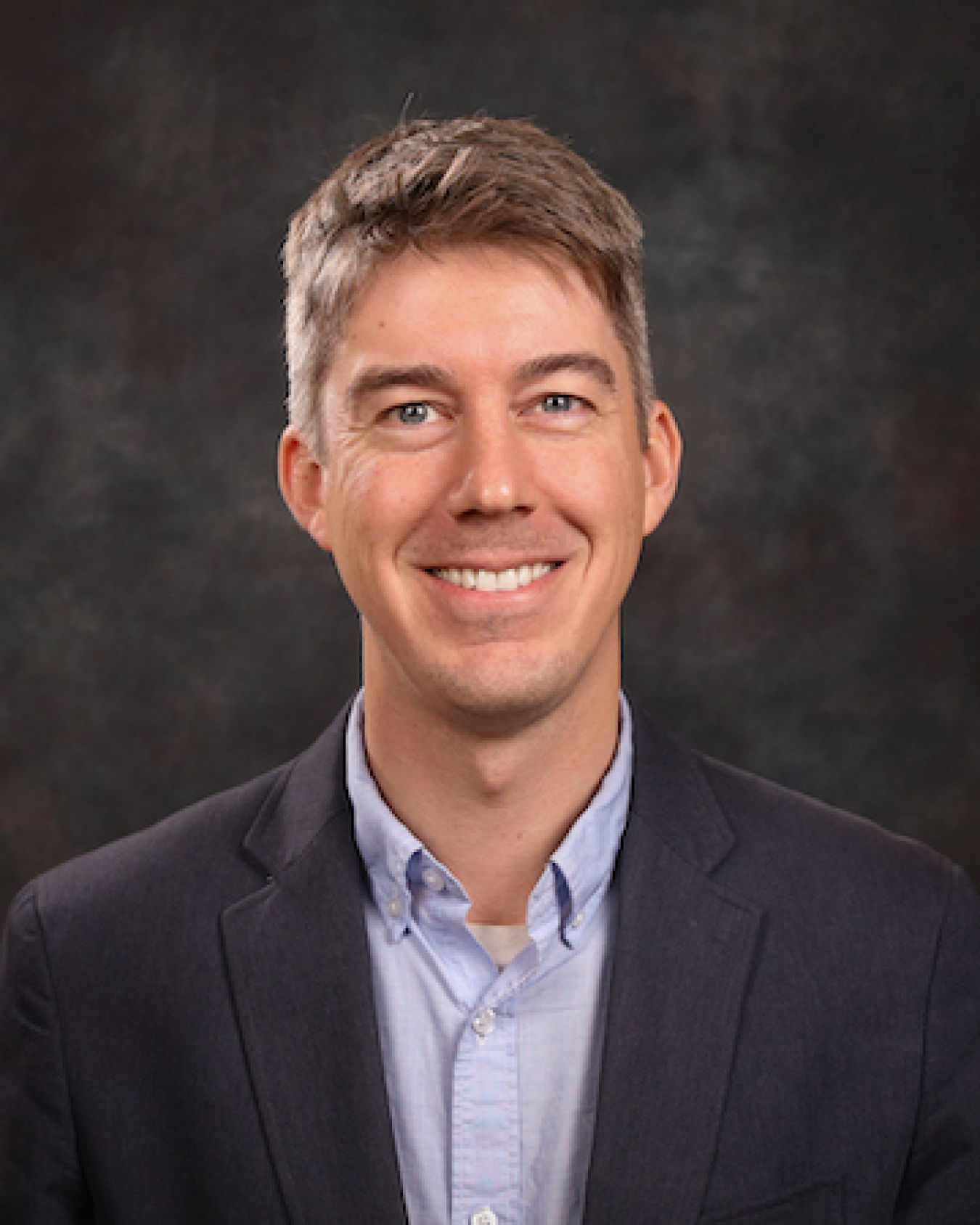
Dr. John Field, Oak Ridge National Laboratory
Dr. John Field is a Research and Development Staff Member in the Bioresource Science & Engineering Group within the Environmental Sciences Division at Oak Ridge National Laboratory. He studies the performance of bioenergy systems at the intersection of ecosystem ecology and life cycle assessment, using process-based ecosystem models to evaluate the effect of biomass feedstock production on ecosystem carbon storage and greenhouse gas emissions. Feedstocks he has studied include switchgrass, corn stover, winter oilseed crops, and wood from trees killed by mountain pine beetle outbreaks in the Rocky Mountains. Much of his work has focused on bioenergy landscape design, including how feedstock production could be targeted on marginal lands to maximize environmental benefits. He has a particular interest in carbon-negative bioenergy systems, including carbon capture and storage technology, and pyrolysis and gasification systems that co-produce biochar.
Dr. Field received his B.S. from Case Western Reserve University and his Ph.D. from Colorado State University. He was previously a research scientist at the Colorado State University Natural Resource Ecology Laboratory.
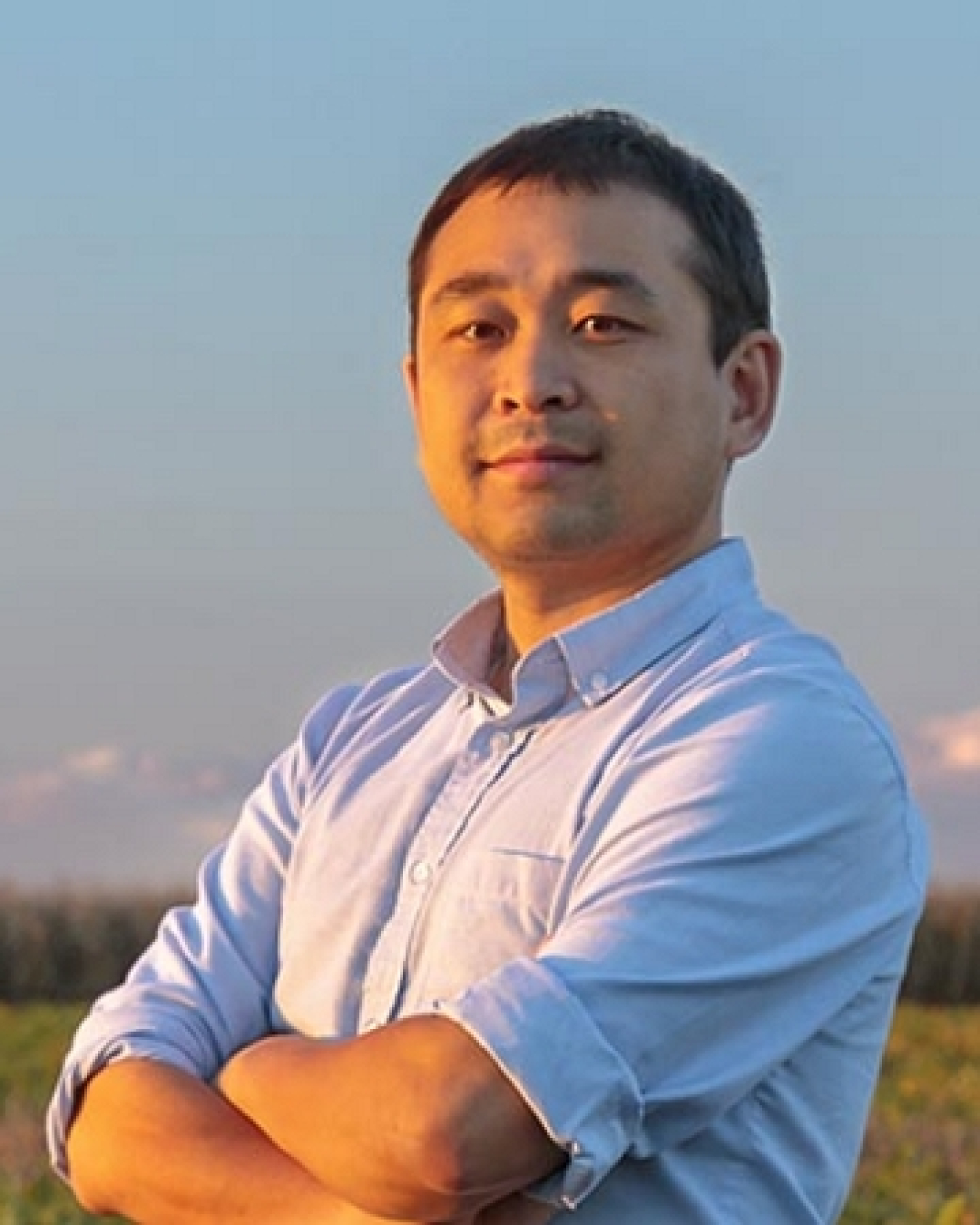
Dr. Kaiyu Guan, University of Illinois at Urbana-Champaign
Dr. Kaiyu Guan is a Blue Waters Associate Professor in ecohydrology and remote sensing at the University of Illinois at Urbana-Champaign (UIUC). Before he joined UIUC in 2016, he was a postdoc fellow at Stanford University. Dr. Guan’s group at UIUC focuses on advancing the science and developing solutions for sensing, modeling, managing agroecosystem productivity, and environmental sustainability. Dr. Guan has published over 100 papers in leading scientific journals. He serves as principal investigator (PI) and Co-PI for 20+ federal grants from the National Aeronautics and Space Administration, National Science Foundation, U.S. Department of Energy (DOE), and U.S. Department of Agriculture. In particular, Guan leads two DOE Advanced Research Projects Agency-Energy SMARTFARM projects aiming to (1) generate the gold-standard farm-level carbon emission and soil carbon data and (2) develop commercial solutions to measure field-level agricultural carbon credit in a scalable, accurate, and cost-effective way.
Dr. Guan received a B.S. in geography and geoinformatics at Nanjing University, and an M.A. and Ph.D. in environmental engineering from Princeton University.
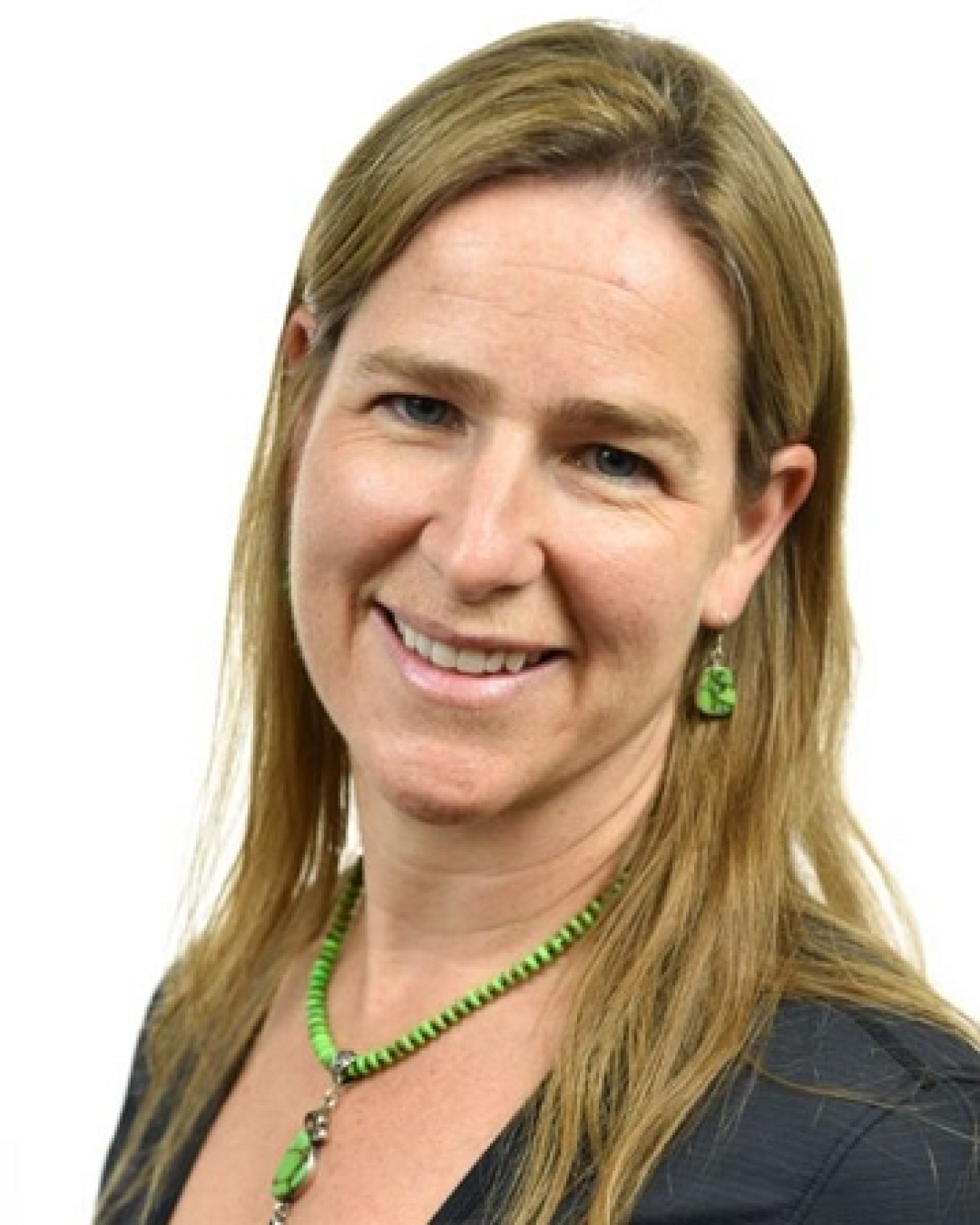
Dr. Kirsten Hofmockel, Pacific Northwest National Laboratory
Dr. Kirsten Hofmockel is the Microbiome Science team lead in the Biological Sciences Division at Pacific Northwest National Laboratory (PNNL) and leads the Soil Microbiome research program that investigates the basic biology underpinning how soil microbial community members interact to generate beneficial ecosystem functions.
Dr. Hofmockel is the President of the Soil Ecology Society, an international organization focused on furthering the science, education, and awareness of the importance of soils for human and environmental well-being. She serves as a liaison to the U.S. National Committee for Soil Sciences, which advises the National Academies and represents the interests of the U.S. soil science community in the International Union of Soil Sciences.
Hofmockel is a U.S. Department of Energy Early Career Award recipient for research focused on how plants, microbes, and soils interact to influence carbon storage. Hofmockel holds a joint appointment in the Department of Agronomy at Iowa State University.
Dr. Hofmockel receive a B.S. in environmental resource management from Pennsylvania State University and an M.S. in environmental management and a Ph.D. in ecology from Duke University.
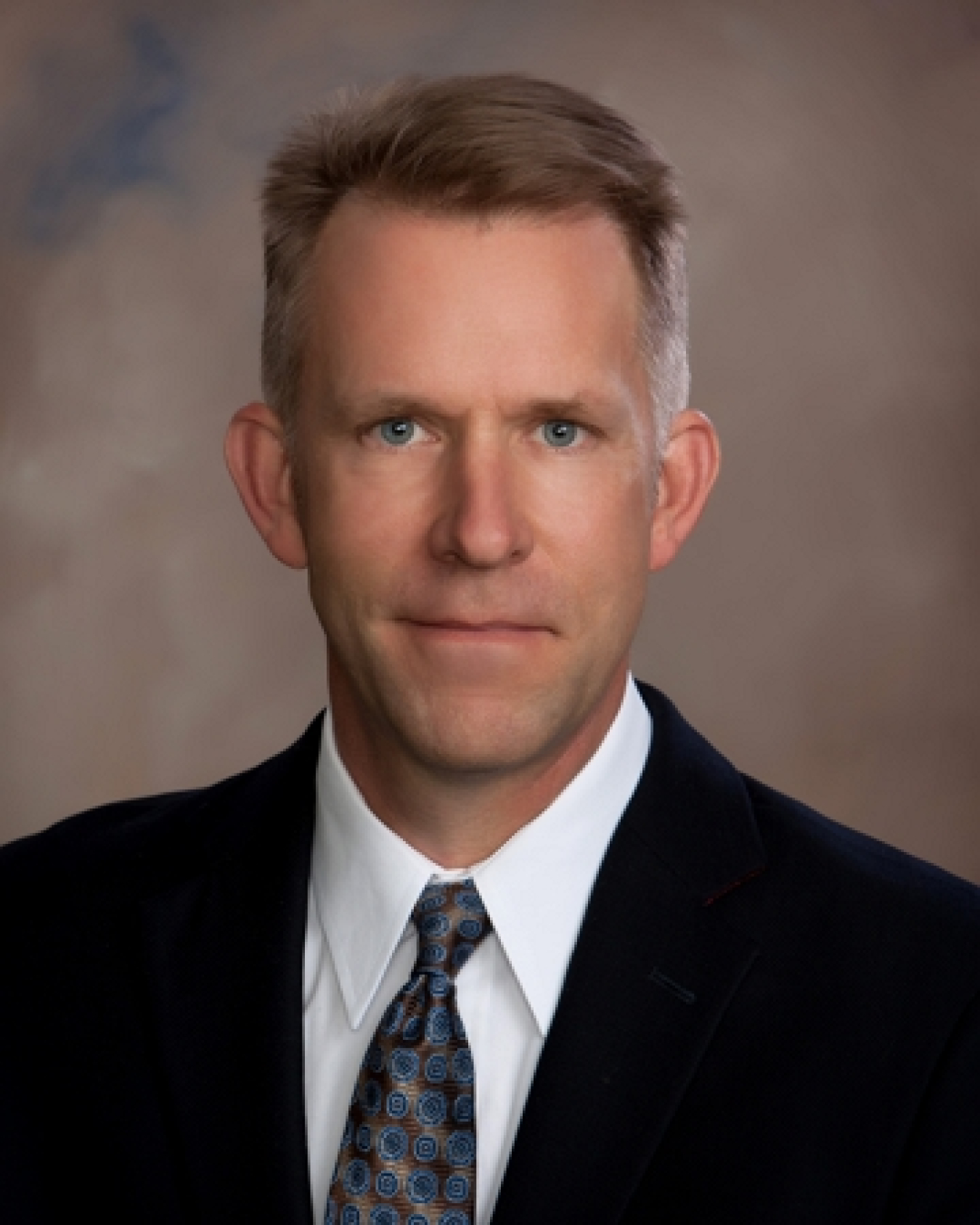
Dr. Mark Liebig, U.S. Department of Agriculture, Agricultural Research Service
Dr. Mark Liebig is a Research Soil Scientist at the U.S. Department of Agriculture, Agricultural Research Service (USDA-ARS). He works with a multidisciplinary team of scientists to develop soil, crop, and animal management practices for the Great Plains to overcome limitations to productivity while maintaining or enhancing environmental quality. As a team member, he leads basic and applied research to quantify management effects on soil properties and associated ecosystem services. In addition to core research responsibilities, Dr. Liebig develops decision aides and evaluation tools for producers, conservationists, and scientists, and regularly contributes to research networks within and outside USDA-ARS.
Dr. Liebig received a B.A. in mcd biology from the University of Colorado, and an M.S. and Ph.D. in agronomy from the University of Nebraska.
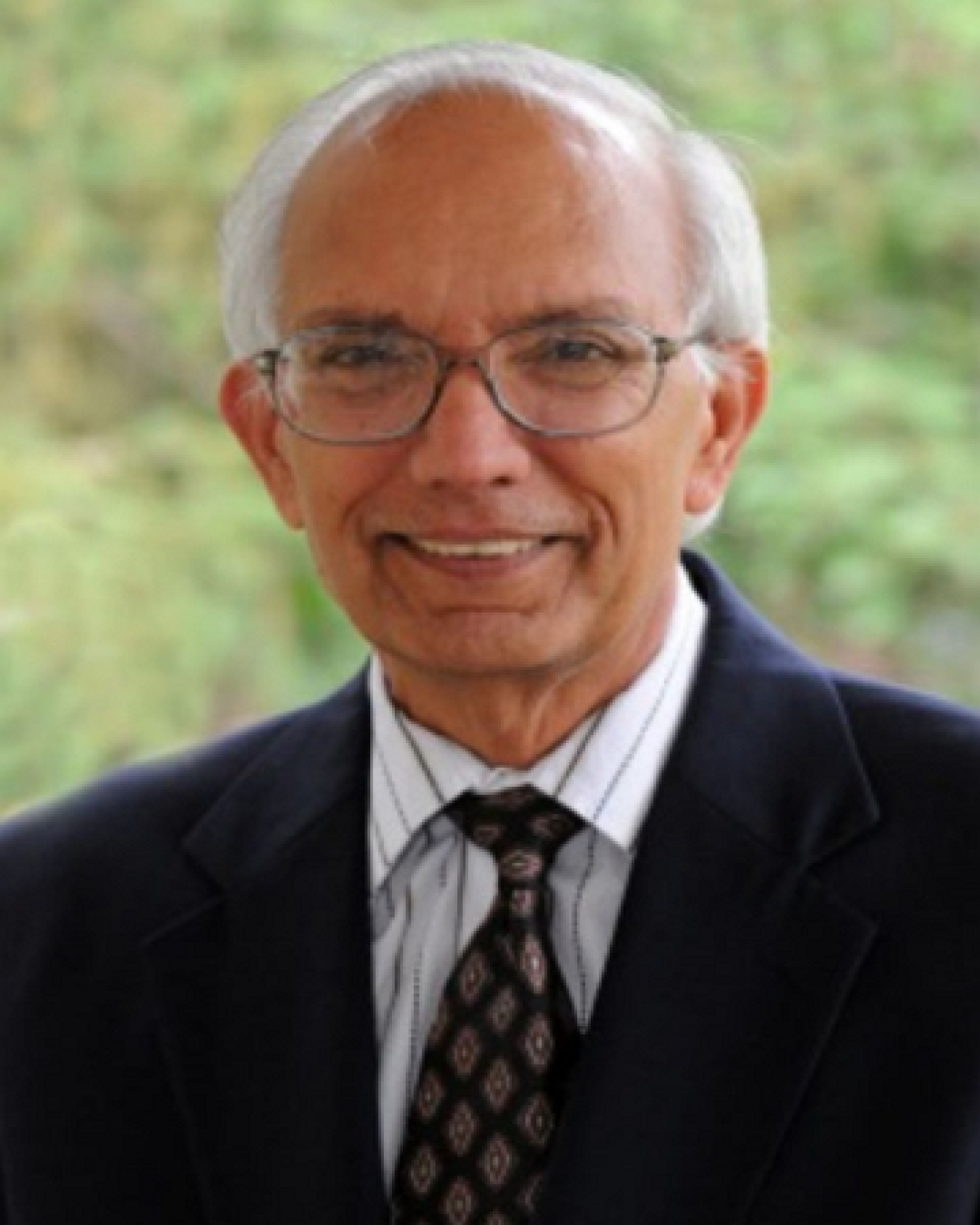
Dr. Rattan Lal, Ohio State University
Dr. Rattan Lal is a Distinguished University Professor of Soil Science and Director of the CFAES Rattan Lal Center for Carbon Management and Sequestration at The Ohio State University (OSU). He is an Adjunct Professor of the University of Iceland and the Indian Agricultural Research Institute (IARI) in India and a Visiting Professor at Pontifical Catholic University of Valparaíso, Chile. Dr. Lal is recognized globally as a pioneer in soil centric agricultural management to improve food security and develop climate-resilient agriculture through soil carbon sequestration, sustainable intensification, use efficiency of agroecosystems, sustainable management of soils, and soil health. His career in soil science and international agricultural research spans over 5 decades and four continents.
Dr. Lal has mentored about 400 professionals from around the world comprising of 115 graduate students, 170 visiting scholars, 56 postdoctoral researchers, 20 research scientists and other advisees. These scientists now comprise of a network of cooperators addressing global issues related to food and nutritional security, adaptation and mitigation of climate change, and restoration of degraded soils and ecosystem. He has authored/coauthored more than 1,000 peer reviewed articles and co-authored/co-edited more than 100 books.
Dr. Lal received a B.S. from Punjab Agricultural University, Ludhiana (B.Sc.,1963), and M.S. from the Indian Agricultural Research Institute, New Delhi, and a Ph.D. from Ohio State University.
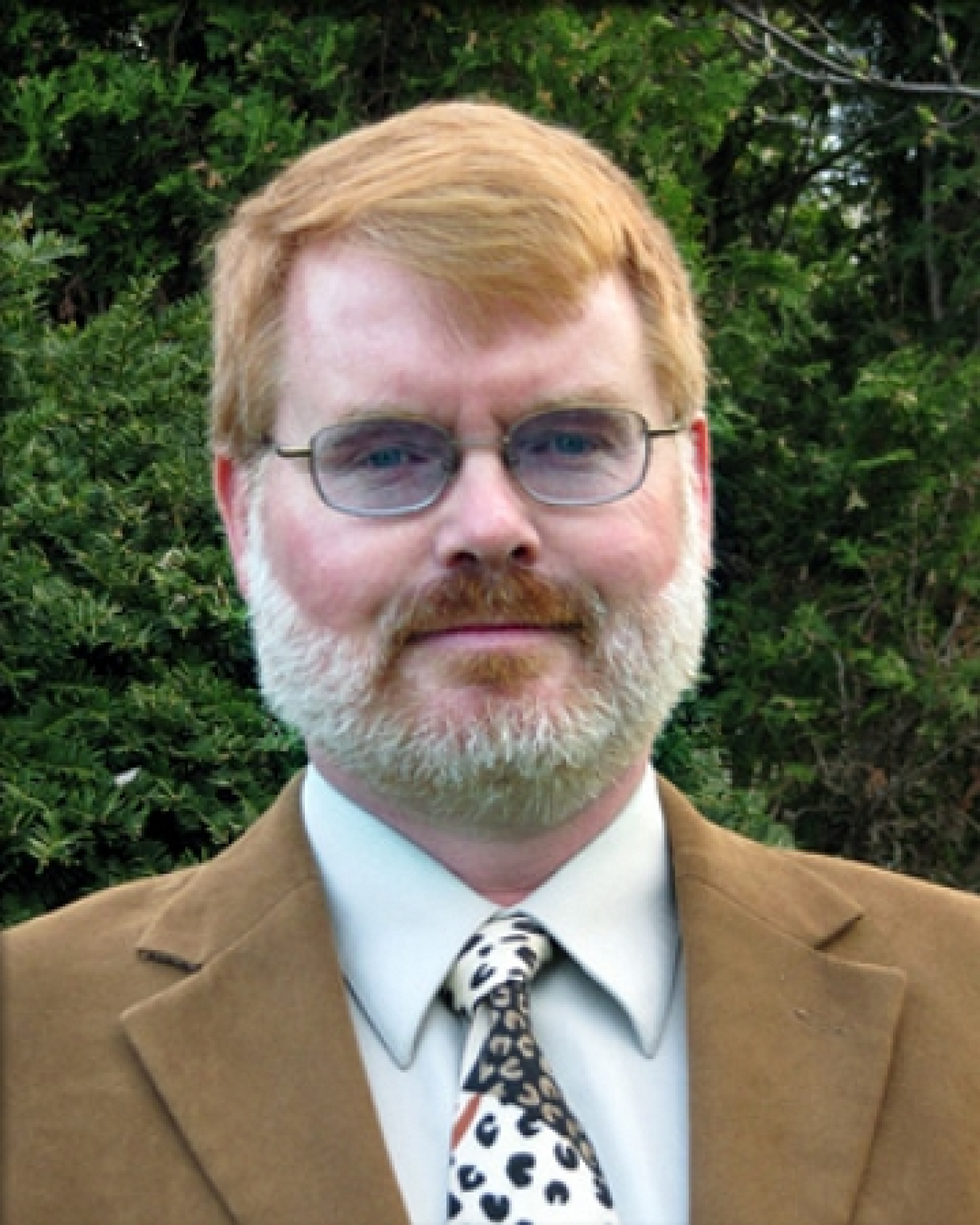
Dr. Timothy Volk, State University of New York
Dr. Timothy Volk has 30 years of experience working in the fields of forestry, agroforestry, short-rotation woody crops, bioenergy, and phytoremediation in the northeastern United States and West Africa. In his current position as Professor and Associate Chair of the Sustainable Resources Management department at the State University of New York, College of Environmental Science and Forestry he is responsible for research projects focused on the development of shrub willow biomass cropping systems as a feedstock for bioproducts and bioenergy. Alternative uses of willow for phytoremediation, living snow fences, wastewater management, and nutrient and riparian buffers are other issues he is currently studying.
Dr. Volk is also actively involved in research and development of harvesting systems for short rotation woody crops and sustainability assessments of bioenergy systems, including life cycle and techno-economic analysis of willow biomass crops and woody biomass from forests. In addition, he works with landowners and companies to support the expansion of short rotation woody crops and use of forest biomass in the northeast United States.
Dr. Volk holds a Ph.D. from the State University of New York College of Environmental Science and Forestry.
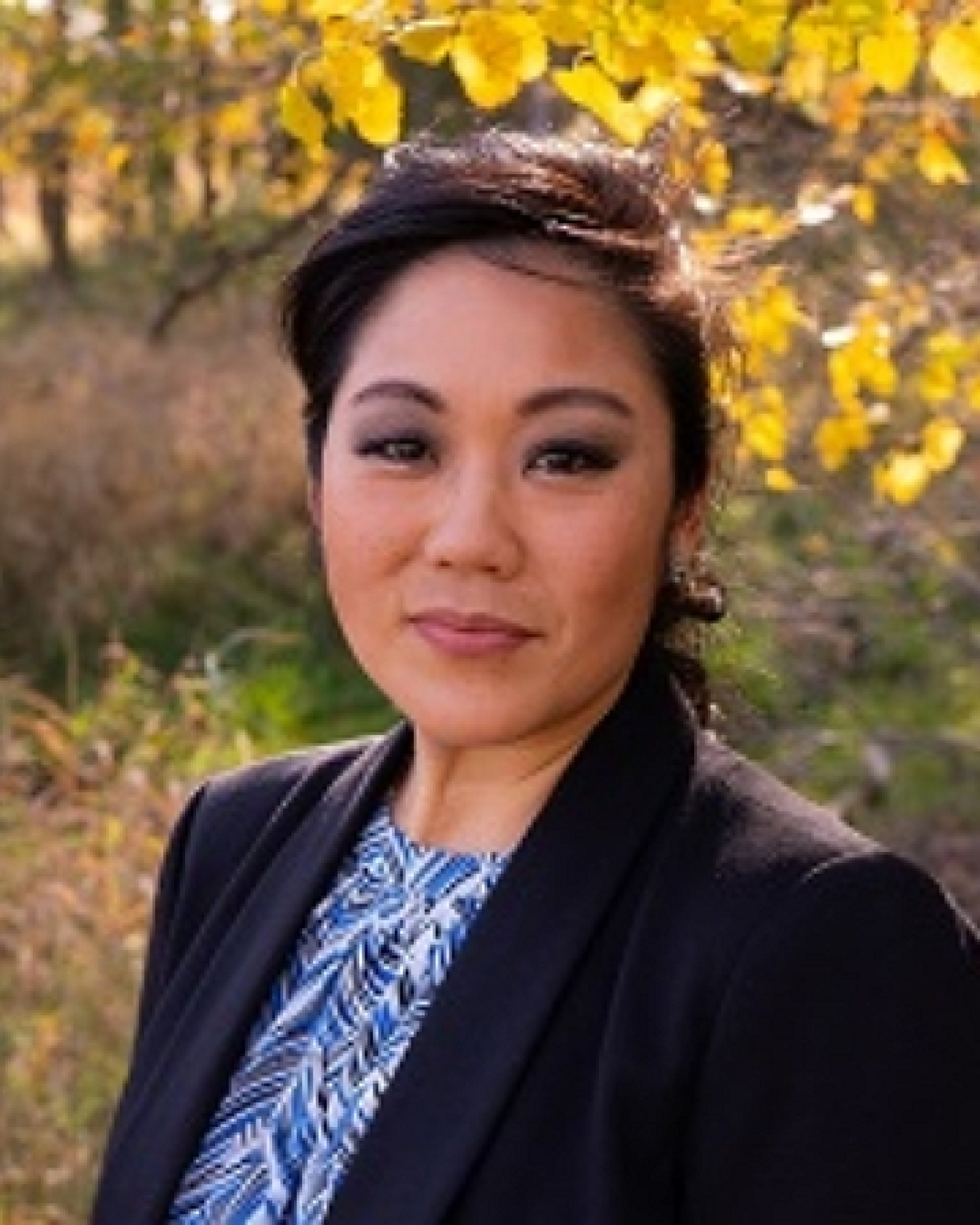
Dr. Virginia Jin, U.S. Department of Agriculture, Agricultural Research Service
Dr. Virginia Jin is the Research Leader of the Agroecosystem Management Research Unit and Location Coordinator of the U.S. Department of Agriculture-Agricultural Research Service in Lincoln, Nebraska. Her soil science research focuses on assessing how conservation vs. conventional management strategies affect soil carbon and nutrient cycling, soil microbial communities, and system greenhouse gas emissions. Taken together, these areas of research contribute to a better understanding of how management affects soil quality, production sustainability, and system resilience to climate changes. Virginia also serves as adjunct faculty at the University of Nebraska-Lincoln’s Department of Agronomy and Horticulture.
Dr. Jin holds a B.S. in biology and English from Duke University and attained and a Master’s in Forest Resources and Ph.D. in plant biology from the University of Georgia.
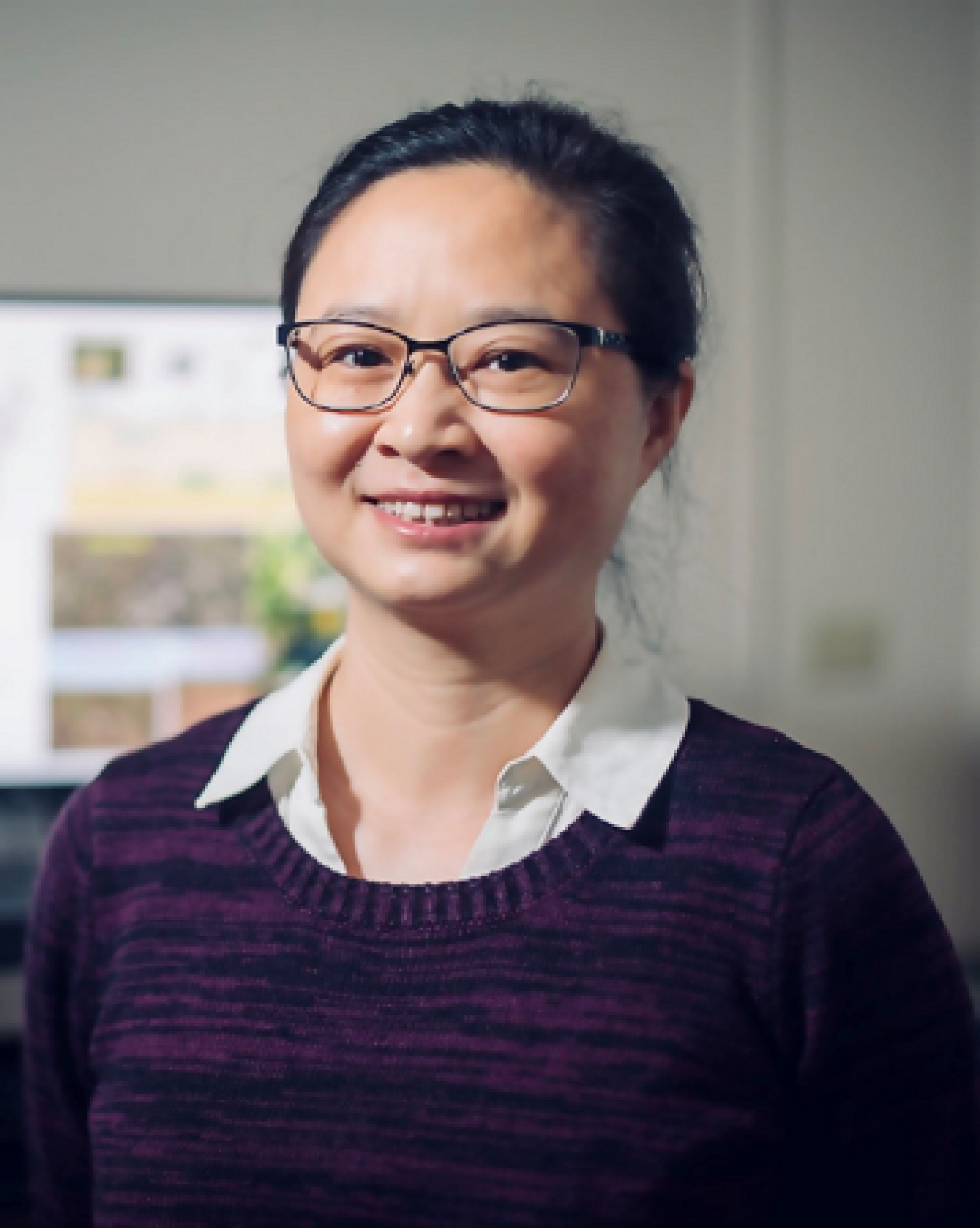
Dr. Wei Ren, University of Kentucky
Dr. Wei Ren is an associate professor at the Department of Plant and Soil Sciences, University of Kentucky. Dr. Ren uses an integrated system approach that combines numerical modeling, multi-source observations (e.g., field measurements, sensor monitoring, remote sensing imagery), and big-data tools to investigate ecosystem dynamics (productivity, soil carbon, greenhouse gas emissions, nutrient leaching) under global environmental changes. She is the recipient of the 2021 NSF Early Career Faculty (CAREER) Award and embarks on a range of projects supported by the National Aeronautics and Space Administration, National Science Foundation, and U.S. Department of Agriculture as an integrated ecosystem modeler.
In this workshop, Dr. Ren will introduce her recent and ongoing research about multiscale climate-smart-agriculture management (e.g., conservation tillage, cover crop, and biochar) and its role in achieving food security, promoting soil carbon sequestration, and building climate resilience.
Dr. Ren earned her M.S. in meteorology at the Nanjing Institute of Meteorology, China and Ph.D. in ecosystem ecology at Auburn University.
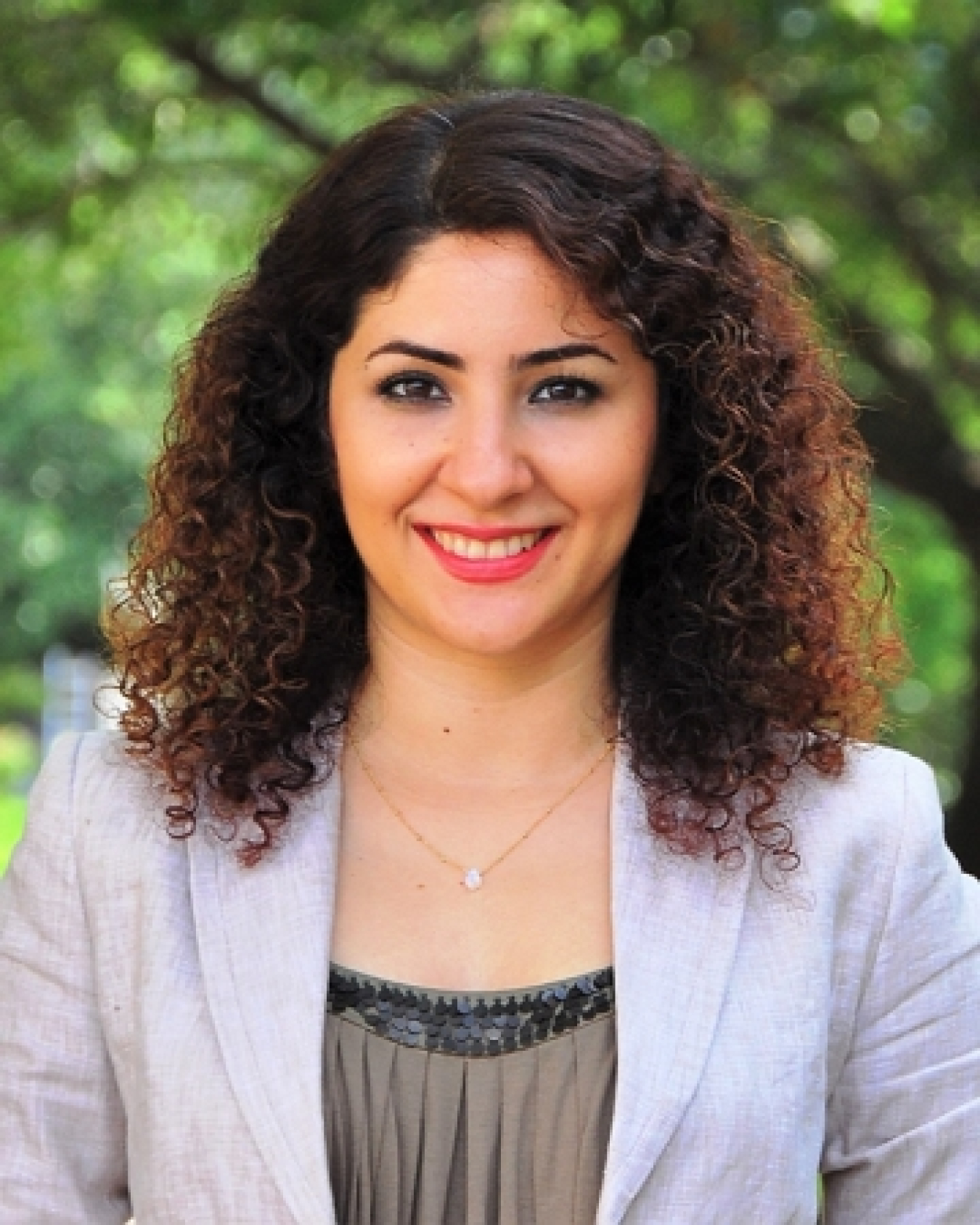
Dr. Ghasideh Pourhashem, Genomatica
Dr. Ghasideh Pourhashem is a sustainability expert and life cycle thinker. Currently, she is an assistant professor at North Dakota State University’s Department of Coatings and Polymeric Materials and Center for Sustainable Materials Science; Senior Process Sustainability Lead at Genomatica, a sustainable source company; and a nonresident scholar at Rice University's Baker Institute for Public Policy.
Dr. Ghasideh Pourhashem has extensively studied the environmental performance and cost-effectiveness of bio-based chemicals, polymeric materials, and fuels. Currently, she leads Genomatica’s sustainability assessment of plant-based processes and molecules that provide novel alternatives to fossil-based chemicals for a wide range of applications.
She obtained her undergraduate and master's degrees in chemical and environmental engineering at Sharif University of Technology and her Ph.D. in environmental engineering at Drexel University.
Elsie Hung, Baker Institute Center for Energy Studies
Shih Yu (Elsie) Hung is a research manager at the Baker Institute Center for Energy Studies. Her research focuses on the geospatial and temporal changes in the energy landscape. She is the lead designer and developer for the Baker Institute China Energy Map and several interactive visualization applications at the center. Hung is also broadly interested in the electricity sector, energy subsidy reforms in the MENA region, and domestic and international waste movements and policies.
Hung holds a B.A. in business administration from National Taiwan University and an M.S. in energy management from Tulane University.
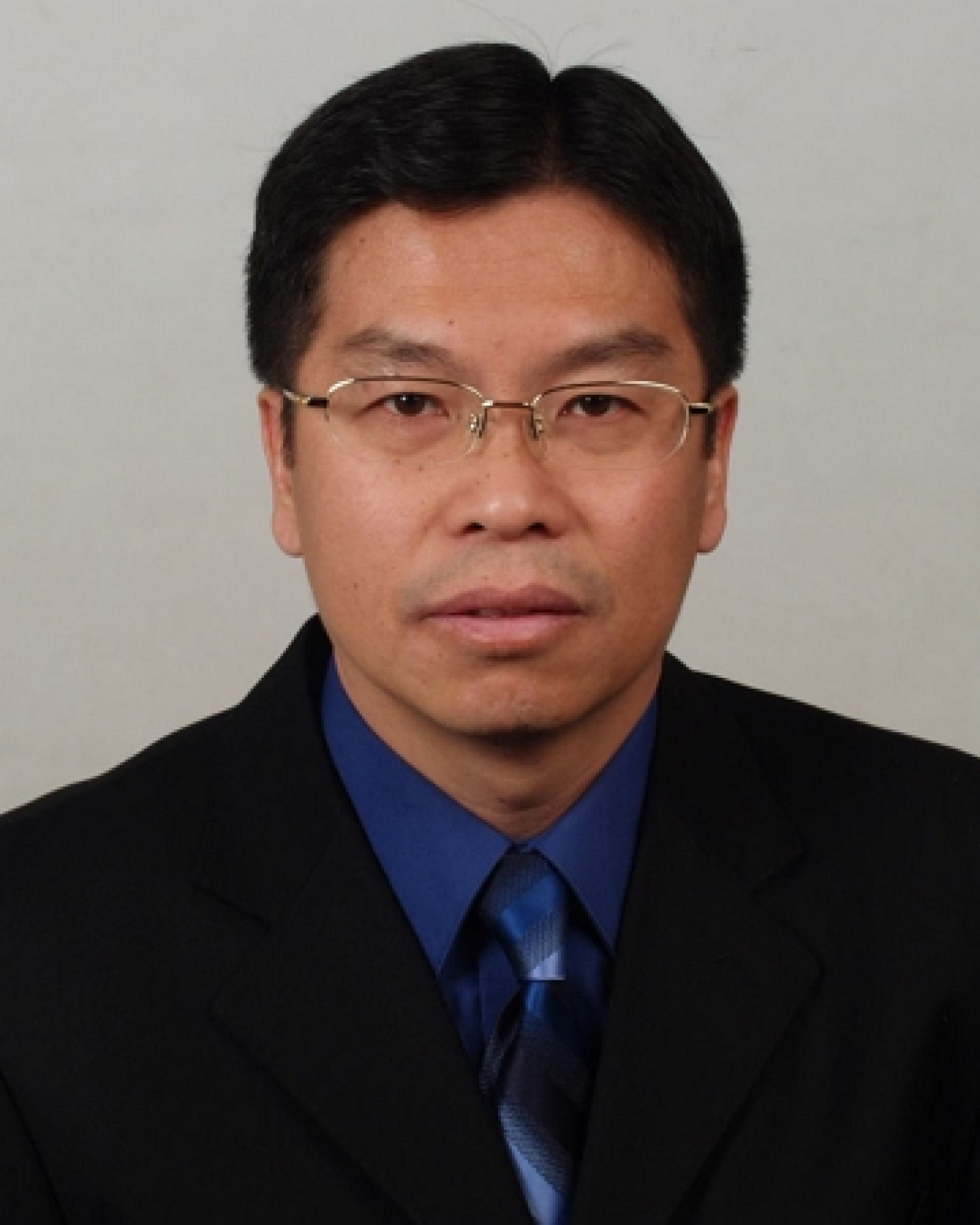
Dr. Jingxin Wang, West Virginia University
Dr. Jingxin Wang is the Benedum Distinguished Scholar and Davis Michael Professor of Forestry and Natural Resources at West Virginia University (WVU). He also serves as the Director of WVU Sustainable Biomaterials & Bioenergy.
Dr. Wang has taught forest and biomass harvest and logistics, and computing applications in natural resources for both undergraduate and graduate students for more than 20 years. His research interests include biomass energy and bioproducts, forest carbon sequestration and decarbonized bioeconomy, computer simulation and system modeling, forest ecosystem services and climate change. Currently, he is a leading principal investigator for several U.S. Department of Agriculture and DOE funded biomass energy and bioproducts projects.
Dr. Wang received three degrees in Forest/Mechanical Engineering in China, an M.S. in Computer Science from West Virginia University, and a Ph.D. in Forest Resource Management from the University of Georgia.
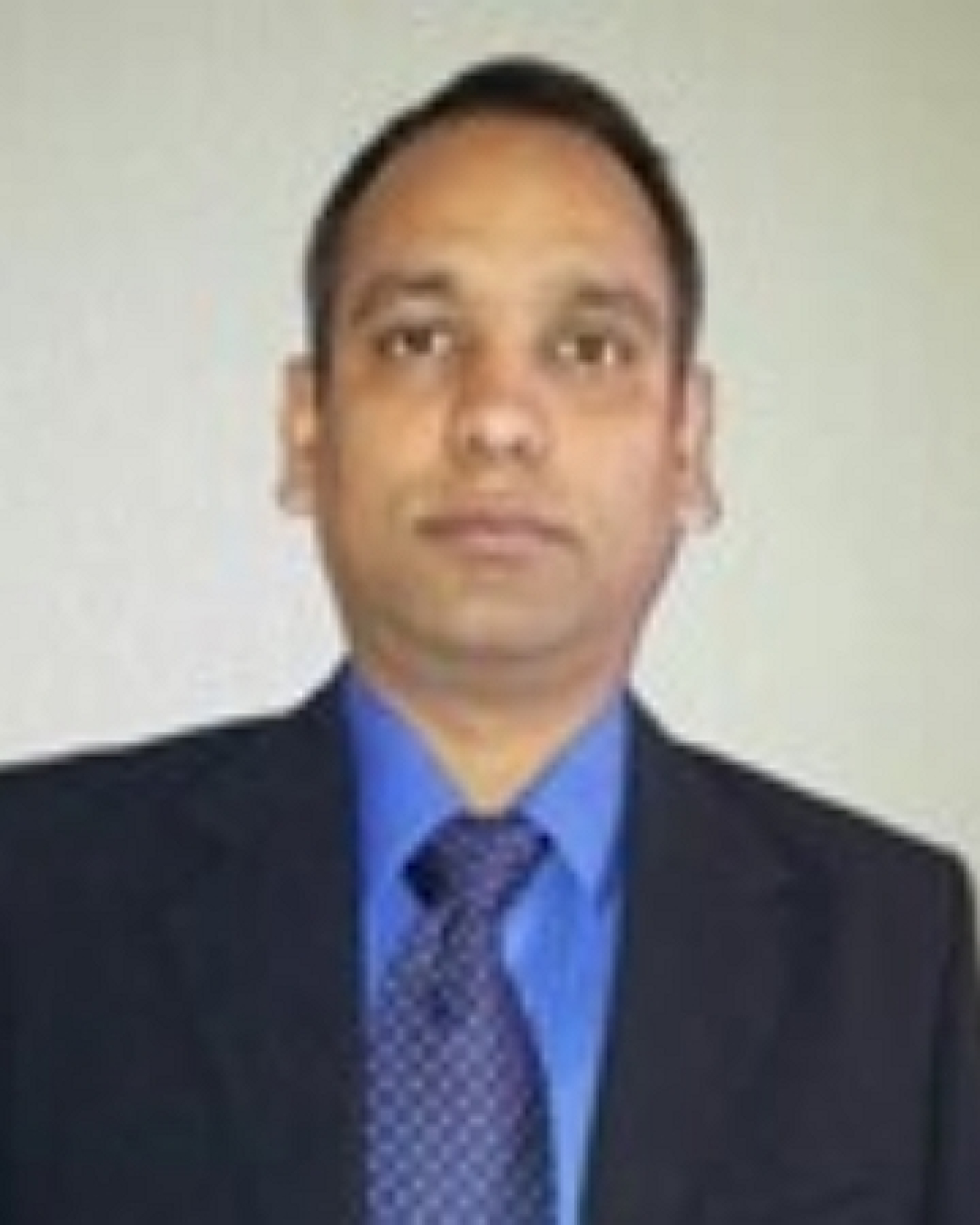
Dr. Sandeep Kumar, U.S. Department of Agriculture
Dr. Sandeep Kumar serves as a National Program Leader within the Institute of Bioenergy, Climate, and Environment, National Institute of Food and Agriculture, U.S. Department of Agriculture (USDA). He provides leadership for programs that include soil health, Small Business Innovation Research, Plant Microbiome, SitS (sensors in soils). Prior to joining USDA, he worked as Associate Professor of Soil Biophysics and Soil Management at South Dakota State University, and before that he worked as Postdoctoral Researcher and Research Scientist at Ohio State University.
Dr. Kumar has conducted research on various projects those focused on developing sustainable management systems (e.g., converting to no-till, adding cover crops, integrating crops and livestock, diversifying rotations, introducing perennial grasses on marginal lands) and their impacts on soil health, agricultural emissions, and water quantity and quality.
Dr. Kumar Sandeep received his Ph.D. in Soil Physics from the University of Missouri-Columbia.
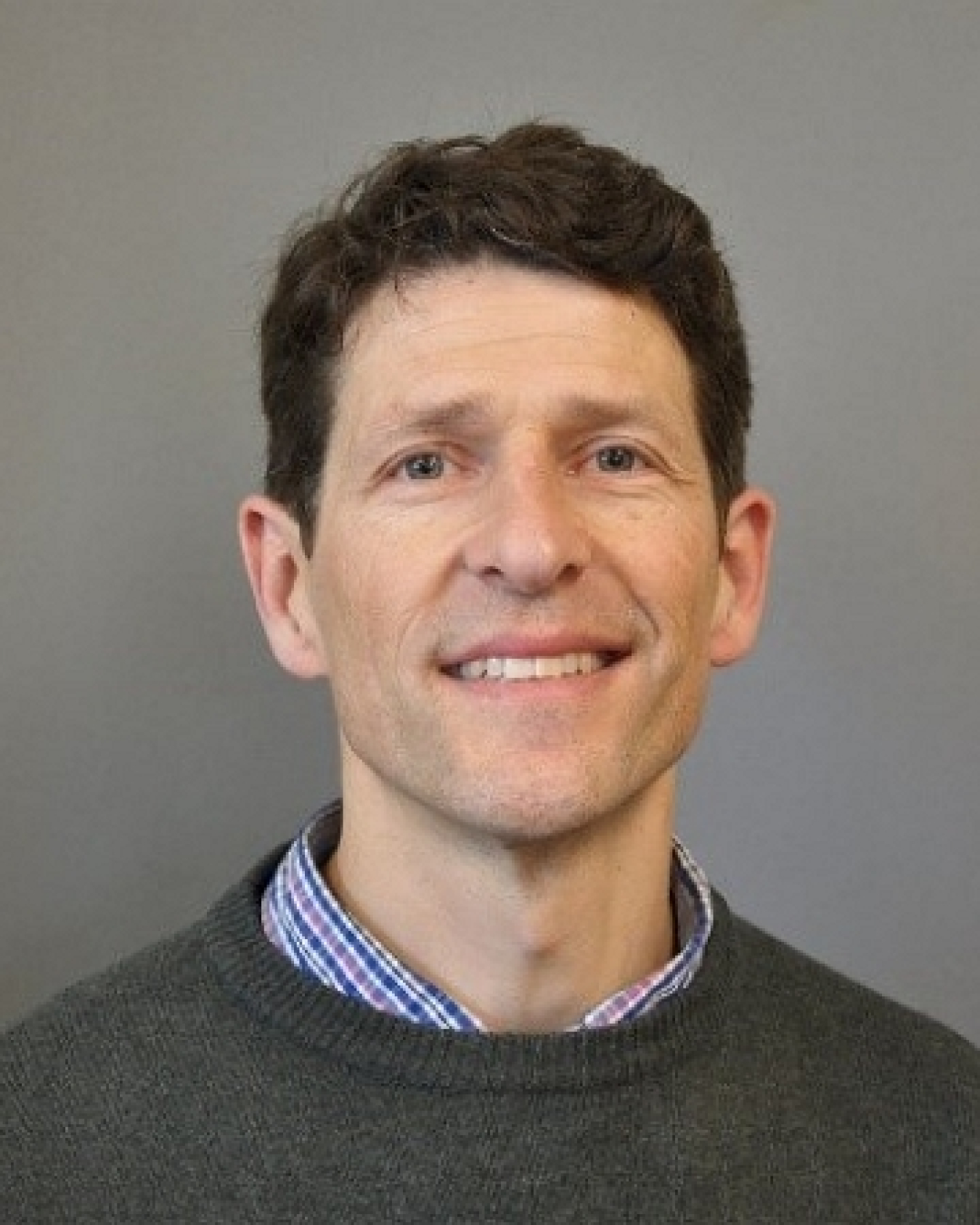
Dr. Peter Vadas, U.S. Department of Agriculture
Dr. Peter Vadas is a National Program Leader for Land and Air Management with the U.S. Department of Agriculture, Agricultural Research Service (ARS), Office of National Programs in Beltsville, MD. He helps lead the 212: Soil and Air and 215: Grass Forage and Rangeland Agroecosystems National Programs. As a Program Leader, Dr. Vadas brings coordination, communication, and empowerment to research projects carried out by field scientists to maximize relevance, impact, and quality of ARS research.
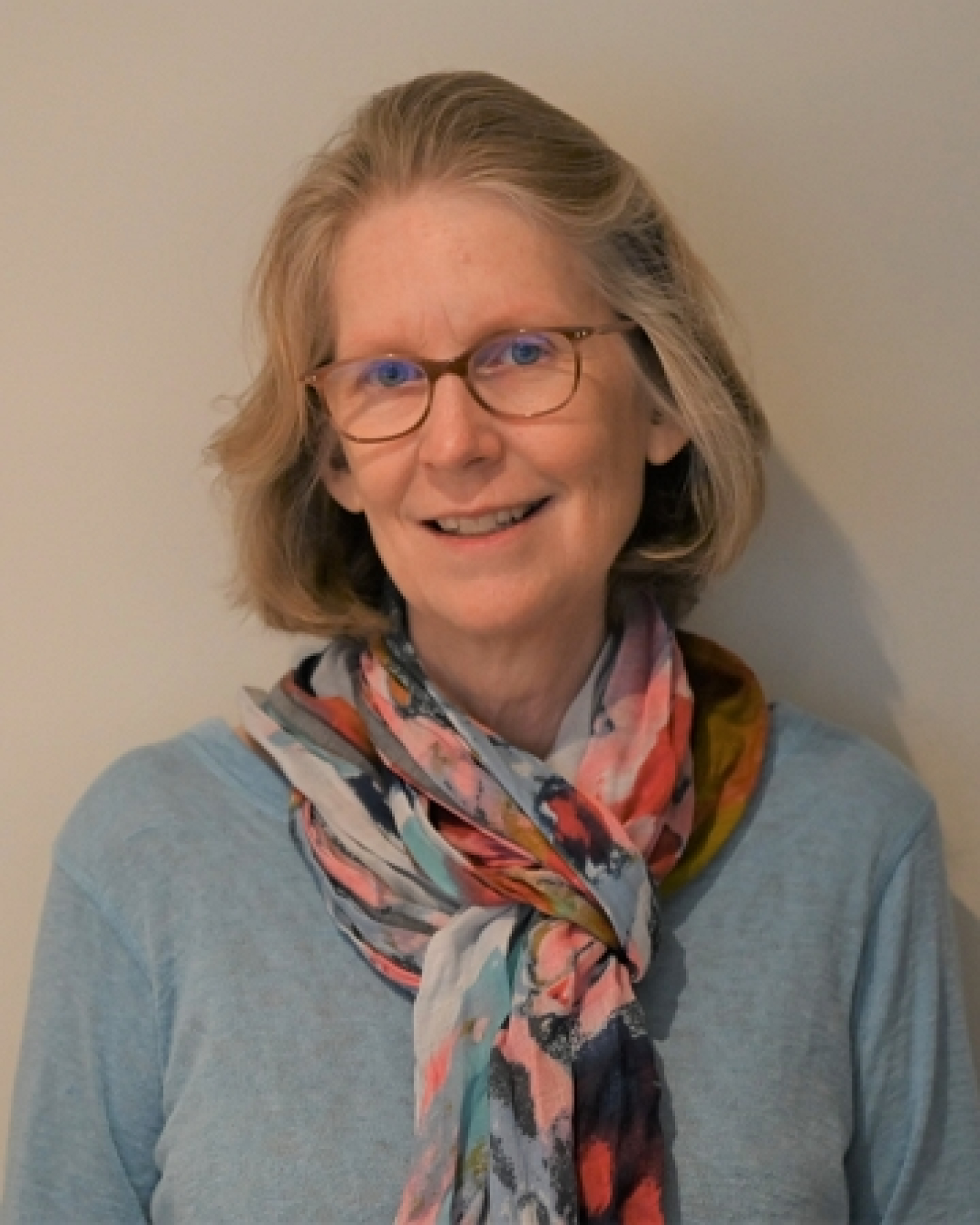
Dr. Anne Marsh, U.S. Department of Agriculture
Dr. Anne Marsh is the National Program Lead for Bioclimatology and Climate Change Research at the U.S. Department of Agriculture (USDA) Forest Service. In this position, Dr. Marsh is responsible for national program development and planning for climate change research. She develops assessment materials, communicates field research findings, builds strategic alliances, and networks, and assists with policy evaluation and research funding, working in close collaboration with U.S. Forest Service Research Stations, universities, and natural resource professionals. Anne supports the USDA Climate Hubs on forest and grassland issues and works closely with the U.S. Global Climate Change Research Program.
Dr. Marsh received a B.A. from Williams College and an M.F.S. and Ph.D. from Yale University.
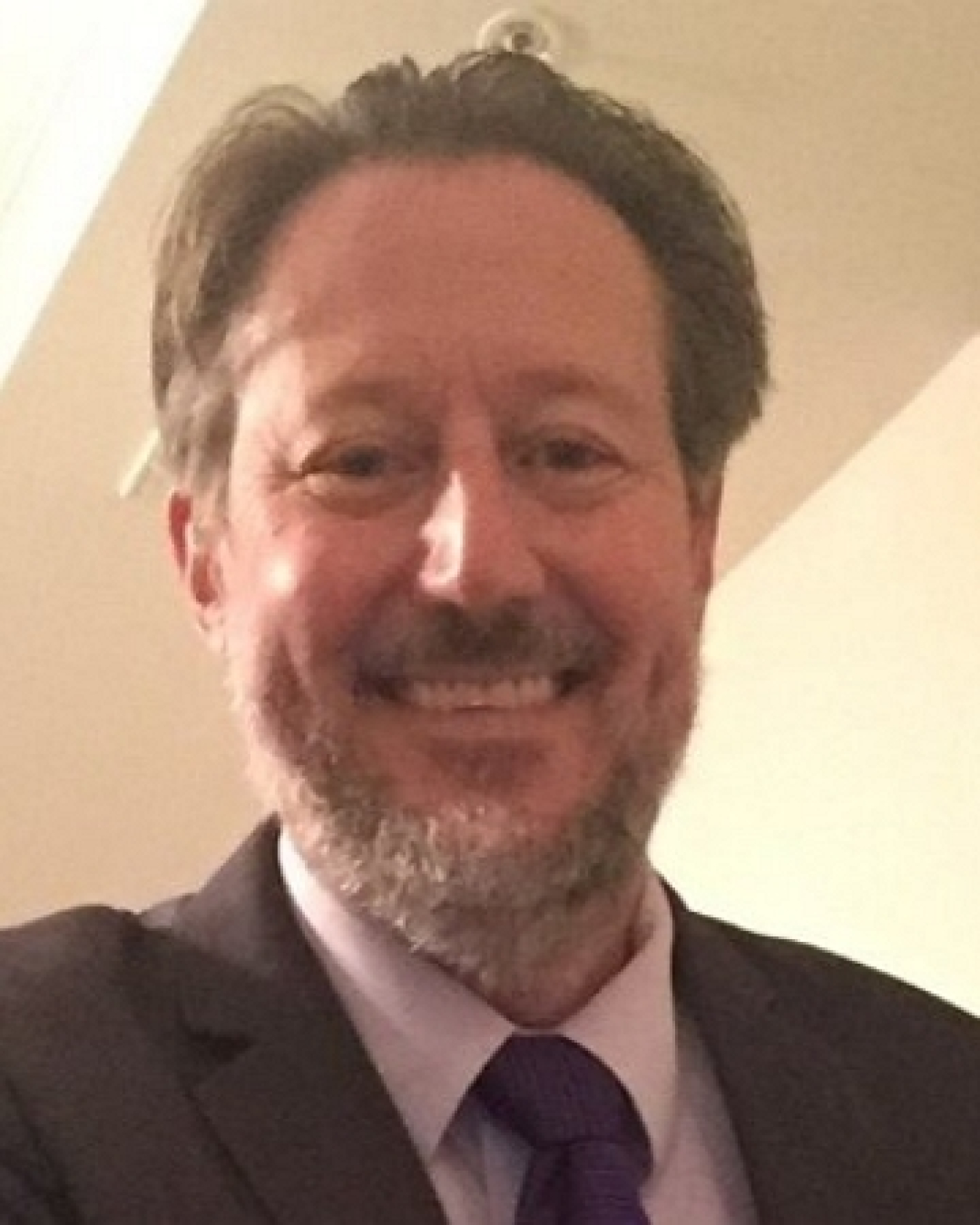
Dr. Michael Robotham, U.S. Department of Agriculture
Dr Michael Robotham is the Senior Scientist for the Soil Services and Resource Assessment Deputy Area of the U.S. Department of Agriculture’s Natural Resources Conservation Service (NRCS). Dr Robotham provides senior technical leadership and coordination to support the development and dissemination of soil survey, resource inventory, resource assessment, and related data and information for the United States and affiliated nations of the Pacific. He coordinates Deputy Area efforts to encourage and facilitate the appropriate use of that data and information to support proactive, voluntary natural resources management, including climate smart management, of working agricultural, range, and forest lands. His responsibilities include facilitating technical information exchange and collaboration between NRCS scientists and domestic and international partners.
Dr. Robotham has a B.A. in geological sciences from Northwestern University, an M.S. in resource development from Michigan State University, and a Ph.D. in soil science and agronomy from the University of Hawaii at Manoa.
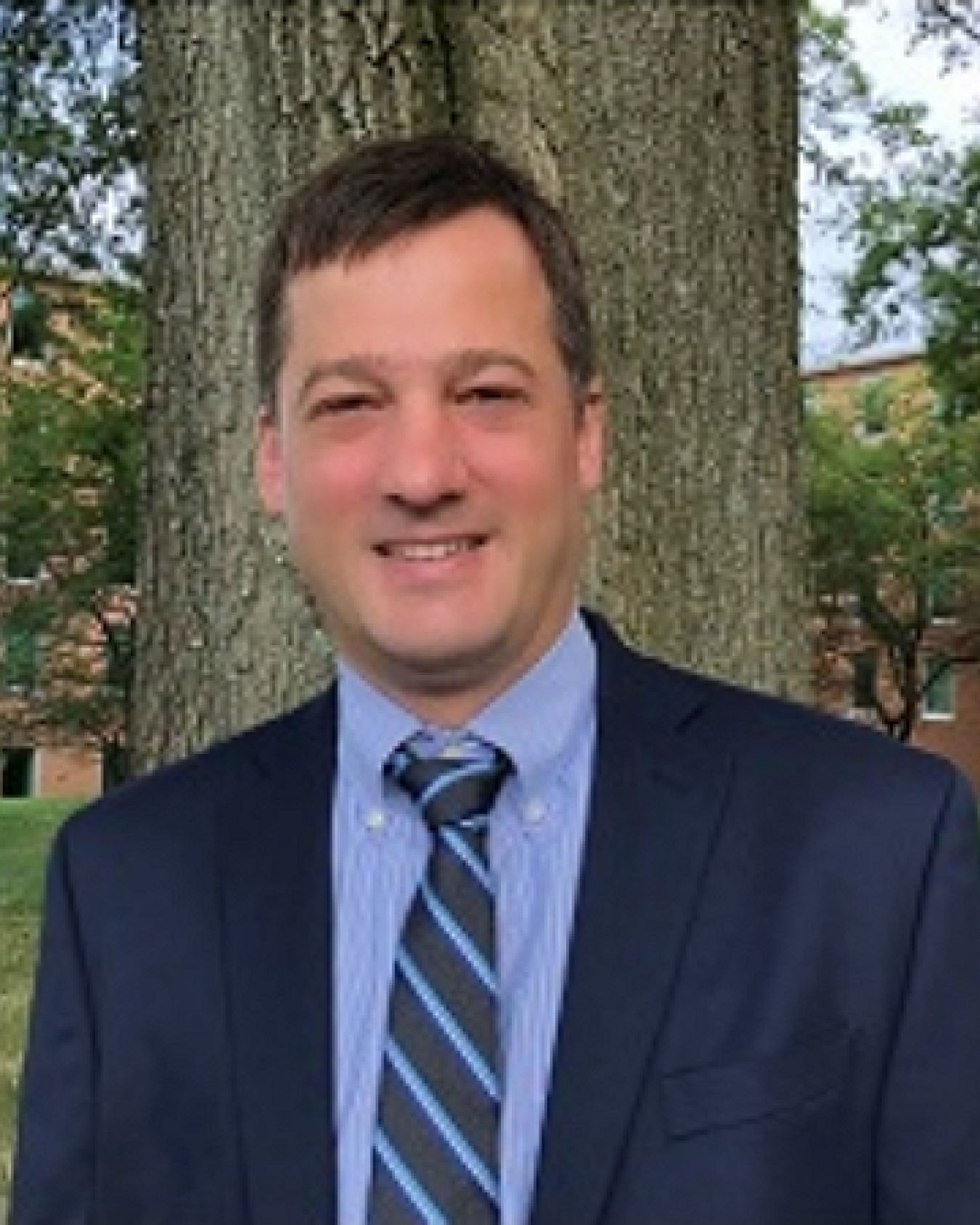
Dr. Boris Wawrik, U.S. Department of Energy
Dr. Boris Wawrik is a microbiologist and a program manager for environmental microbiology in the Biological Systems Science Division within the U.S. Department of Energy’s (DOE’s) Office of Biological and Environmental Research. His background is in molecular ecology and microbial systems biology in terrestrial and aquatic environments. Dr. Wawrik joined DOE in 2019 after 11 years as a faculty member in the University Oklahoma’s Department of Microbiology and Plant Biology. Prior to joining DOE, Dr. Wawrik also worked for one year as a program manager at the National Science Foundation.
Dr. Wawrik earned his Ph.D. in marine science from the University of South Florida, St. Petersburg.
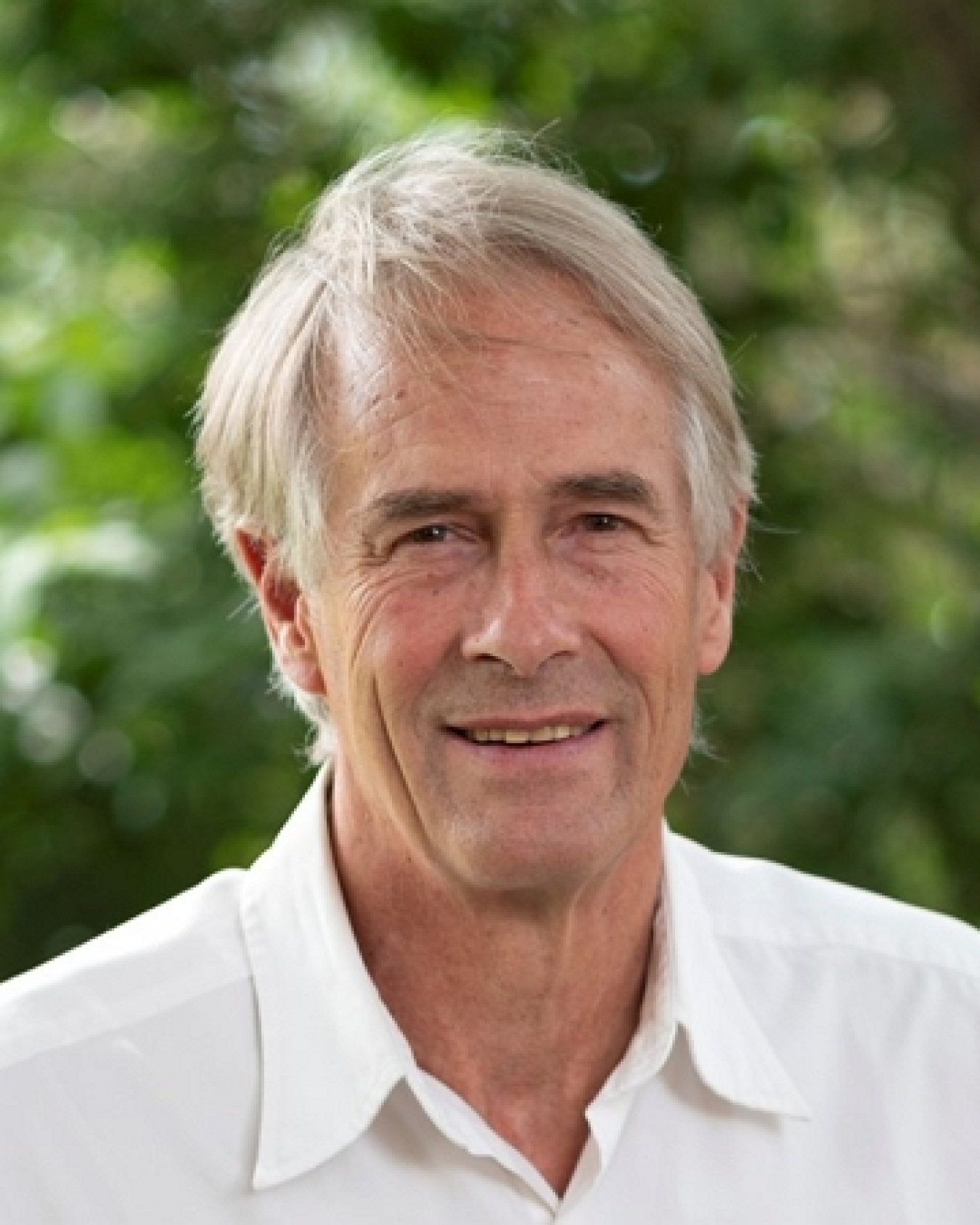
Dr. Keith Paustian, Colorado State University
Dr. Keith Paustian is University Distinguished Professor in the Department of Soil and Crop Sciences and Senior Research Scientist at the Natural Resource Ecology Laboratory at Colorado State University. A major focus of his work involves modeling, field measurement and development of assessment tools for soil carbon sequestration and greenhouse gas (GHG) emissions from soils.
Previous and current research activities include development of models and inventory methodology used to estimate U.S. soil C and N2O emissions that are reported annually by the U.S. Environmental Protection Agency to the United Nations Framework Convention on Climate Change; development of a web-based tool (COMET-FarmTM) for estimating on-farm GHG emissions and carbon sequestration used by the U.S. Department of Agriculture; project-scale systems for GHG assessment of sustainable land management projects in developing countries; and several research projects investigating soil C and GHG dynamics in cropland, grassland, and forest systems.
Dr. Paustian received a B.S. in forest biology and an M.S. in forest ecology from Colorado State University and a Ph.D. in systems ecology from the Swedish U. Agric. Sciences Uppsala.
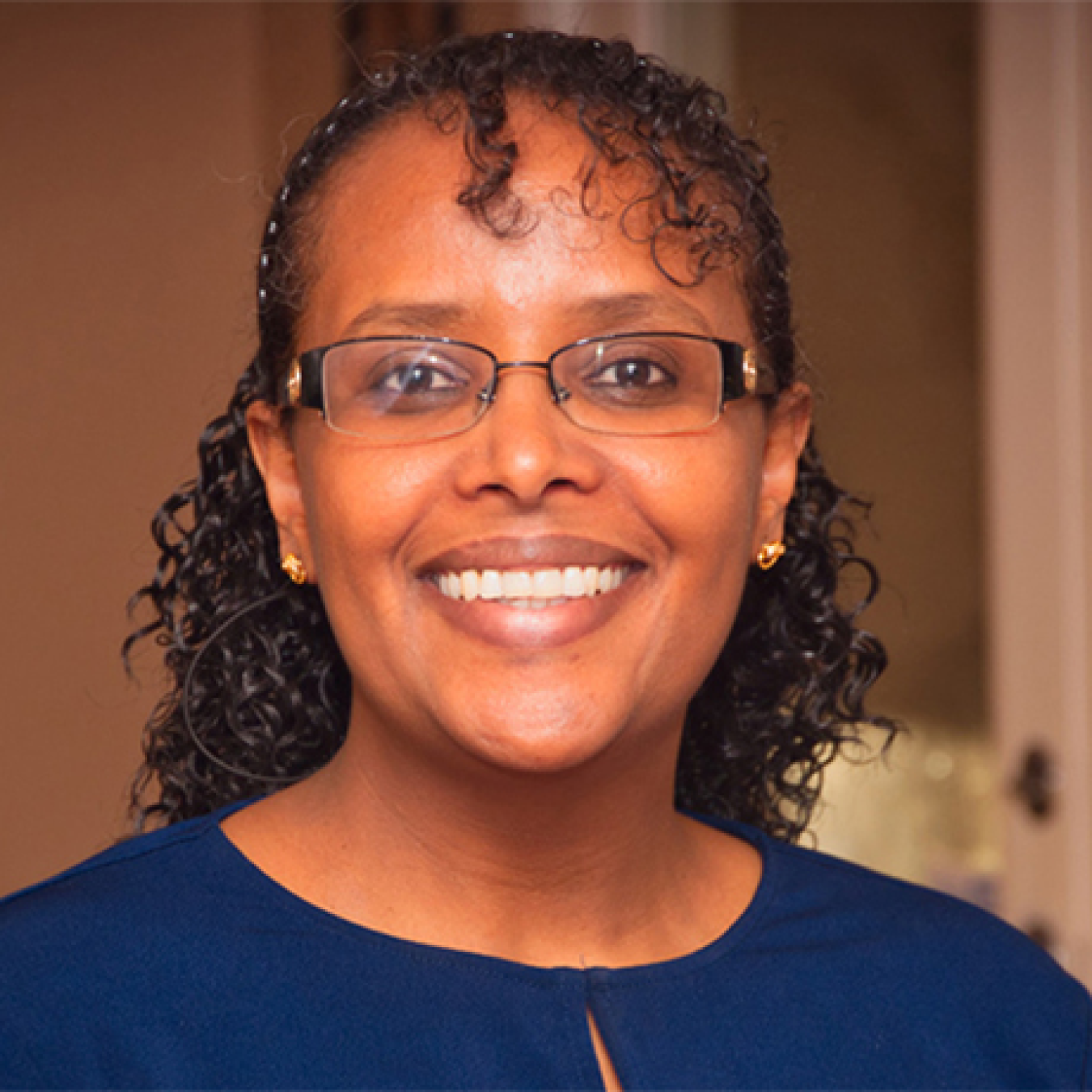
Dr. Asmeret Asefaw Berhe, University of California, Merced
Asmeret Asefaw Berhe is a Professor of Soil Biogeochemistry and Falasco Chair in Earth Sciences at the Department of Life and Environmental Sciences, University of California, Merced. She currently serves as the Interim Associate Dean for the Graduate Division at UC Merced. Her research interest lies at the intersection of soil science, global change science, and political ecology, and seeks to improve understanding of how the soil system regulates the earth’s climate and the dynamic two-way relationship between soil and human communities. Dr. Berhe is passionate about all things soil and is driven to ensure that scientific education and careers are equally accessible to people from all walks of life, and that academic workplaces are free from bias and harassment.
Dr. Berhe received a B.S. from the University of Asmara (Eritrea), an M.S. from Michigan State University, and a Ph.D. from the University of California, Berkeley.
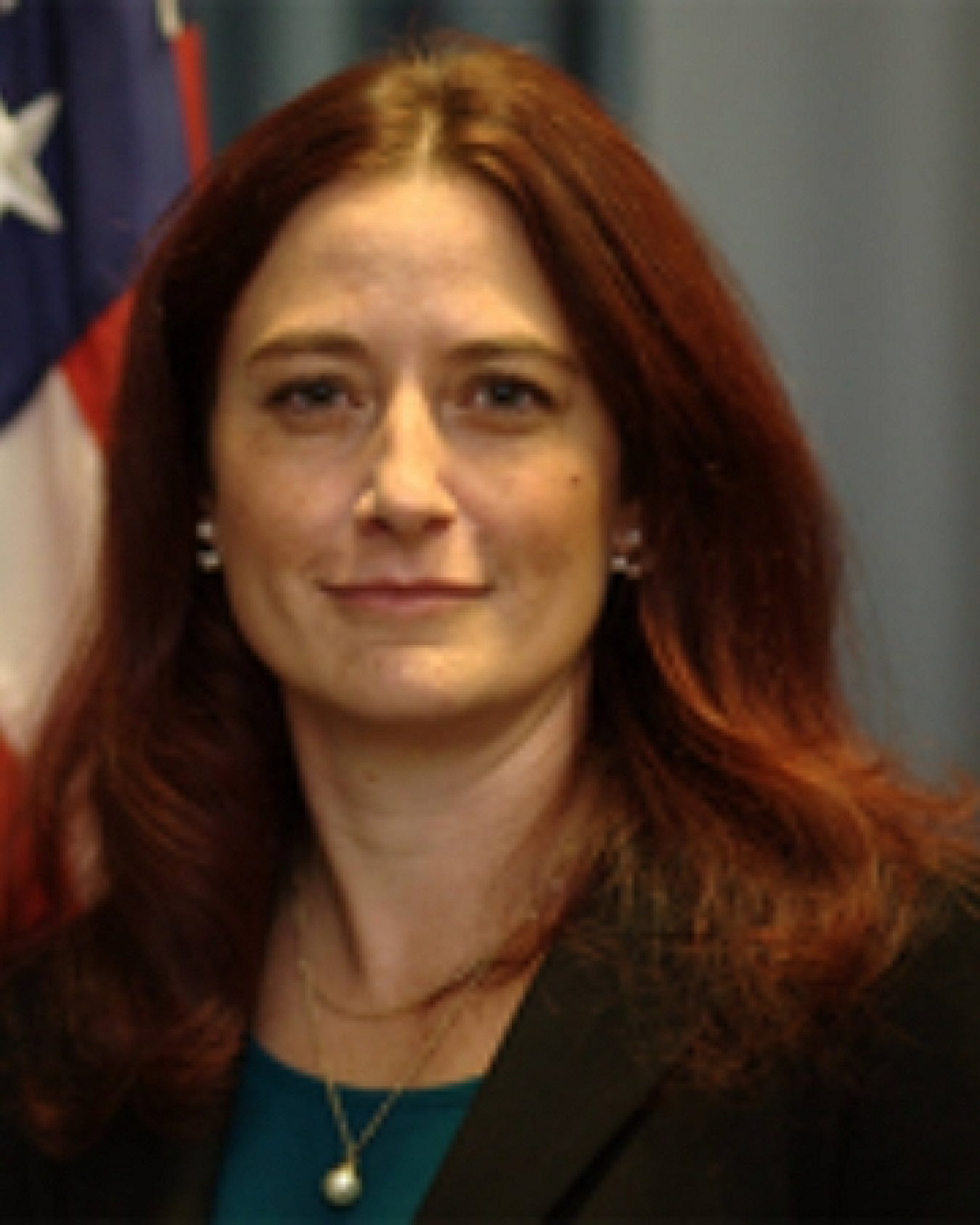
Dr. Brandi Schottel, National Science Foundation
Dr. Brandi Schottel is an Associate Program Director in the National Science Foundation Division of Chemical, Bioengineering, Environmental, and Transport Systems (CBET). Brandi runs CBET international programs; coordinates the Innovations at the Nexus of Food, Energy, and Water Systems initiative; the Signals in the Soil program; and the emerging Sustainable Urban Systems initiative.
Dr. Schottel acquired a B.S. in chemistry and an M.S. in biological sciences from the University of Missouri-Columbia and received a Ph.D. in chemistry from Texas A&M University.
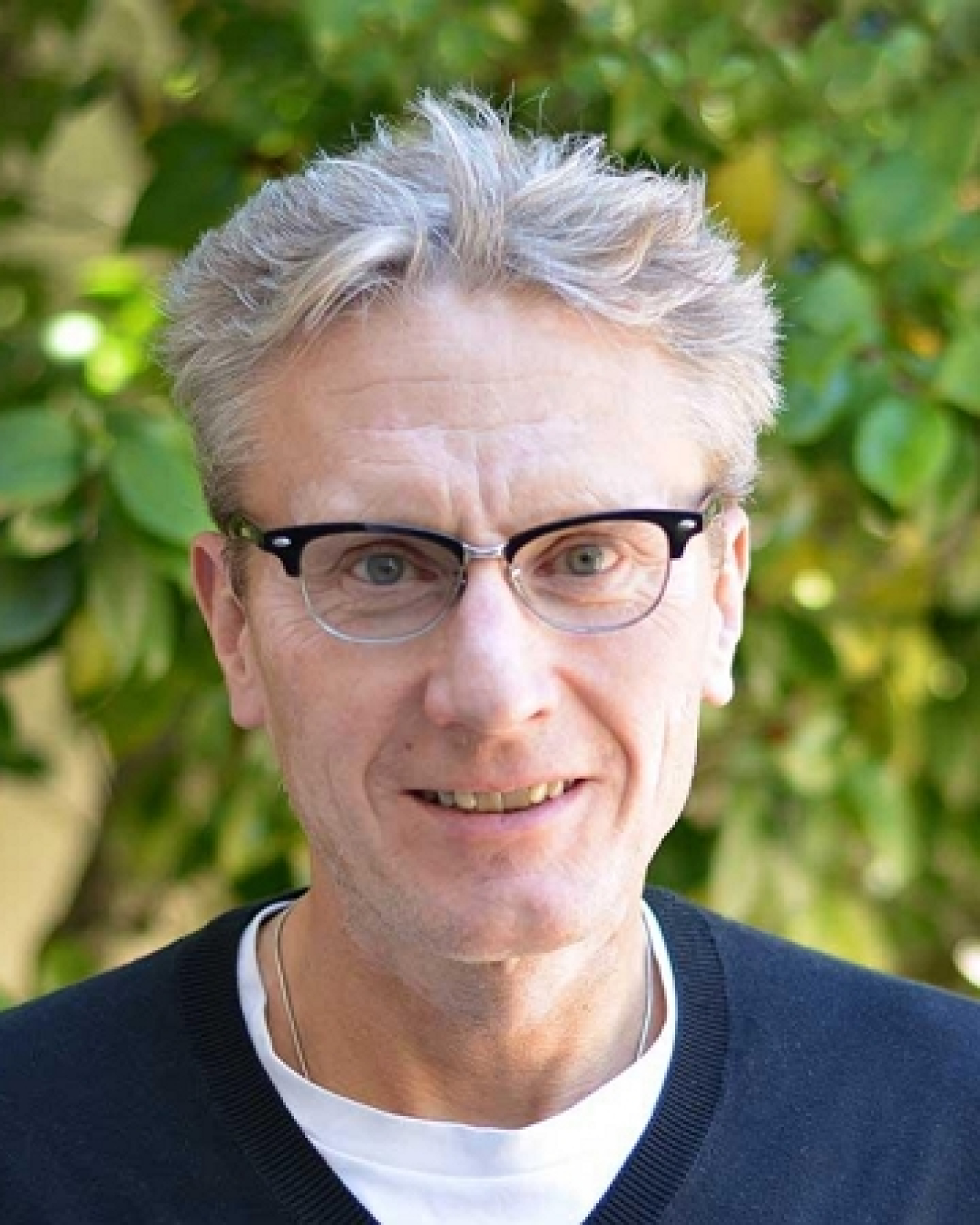
Dr. Ronald Amundson, University of California, Berkeley
Dr. Ronald Amundson is an American environmental scientist who is currently Professor at University of California, Berkeley. Dr. Amundson’s research interested include, pedology isotope biogeochemistry, impact of climate and life on earth processes, soils in biogeochemical cycles, and human impacts on soils and ecosystems. Dr. Amundson is actively engaged in a better understanding the climatic and geological controls on the rates of carbon and nitrogen cycling in soils from around the world and the way in which soils serve as an important control on the chemical composition of the atmosphere.
Dr. Amundson received his Ph.D. from the University of California, Riverside.
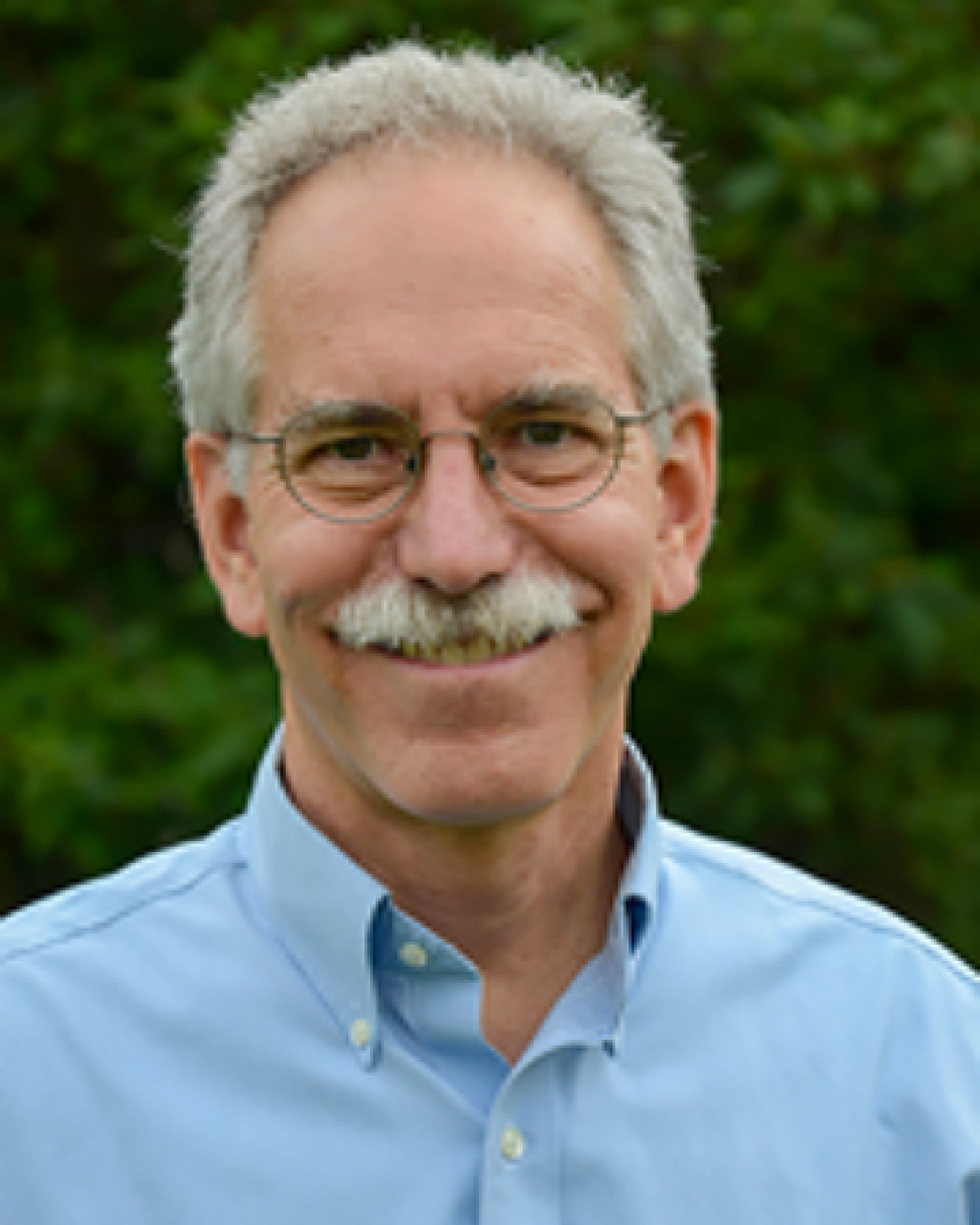
Dr. Tom Richard, Penn State
Dr. Tom Richard is Professor of Agricultural and Biological Engineering at Penn State University and Director of Penn State Institutes for Energy and the Environment Bioenergy and Bioresource Engineering. Dr. Richard currently directs the Northeast Regional Sun Grant Center for the U.S. Department of Agriculture, serves on the Agricultural Science Committee of the U.S. Environmental Protection Agency’s Science Advisory Board and is the deputy technical director for the U.S. Department of Energy’s National Risk Assessment Partnership for geologic carbon sequestration.
He is the author or co-author of over 150 research and technical publications, a Fellow of the American Society of Agricultural and Biological Engineers, and a Fellow and Past President of the Institute of Biological Engineering.
Dr. Richard received his B.S. in political economy of natural resources from the University of California, Berkeley and his M.S. in agricultural engineering and PH.D. in biological engineering from Cornell University.

